Tourist Vs. Traveler: What's the Difference, And Which Travel Type Is Right For You?
Contrary to what one might believe, there is a difference between a tourist and a traveler - so, which one should you be?
Tourist or traveler - what's the difference and which is better? For the purpose of this discussion, a tourist is someone on a short trip (up to around four weeks) that is just taking annual leave from work. A traveler is someone who has quit their job, become a digital nomad, or has taken an extended leave off work to travel for much longer.
These modes of travel offer very different perspectives and benefits. Traveling full time is not for many people, but for others, it's a dream come true!
If one is a tourist, then one is on a holiday. With this style of travel, one will typically pick one or two specific countries or locations to visit. One will normally want to make the most of one's time and so will plan one's trip carefully. Or one will just stay at a beach resort and enjoy sunbathing and cocktails.
- Tourist: On Holiday - Often two Weeks
- Budget: Much Higher
- Daily Schedule: Packed With Things To See and Do
- Pics: Tons Of Pics Every Day
The daily budget of a tourist is generally much higher. This is the time to have a good time and live it up. One is likely to stay at nice accommodation, go and see expensive attractions, and enjoy various activities. This is the good life and time to spend and enjoy life.
Related: 10 Dream Jobs For People Who Love To Travel, Revealed
A traveler is someone traveling for an extended period of time. This can be done in many ways. One can take a "gap year" - after finishing high school and before entering university, just travel for a year. Alternatively, it is common to take the gap year after finishing university but before starting a job. This is often on a shoestring budget. The trip can be financed by volunteering in countries around the world. This is often where one is hosted by a family, business, or farm and does some amount of work in extend for bed and board. It is an awesome way to enjoy a cultural exchange.
- Budget: Managed To Last Long Term
- Gap Year: Take A Year Off And Do Something Completely Different Somewhere Else In The World
Often travelers will quit their jobs for a year and travel. This is very common in Europe, but perhaps less common in America. Often employers will reluctantly agree that as they are good workers, their job will be there when they get back.
- Options: Living Off Savings, Volunteering, Working And Traveling, Digital Nomad
One can also become a digital nomad and work online. In theory, any job that can be done from home on a laptop can be done remotely, if it can be done remotely, it can be down anywhere where there is internet (depending on the security and timezones, etc. of the company). Just move one's home office to Bora Bora in Tahiti or to an Air BnB on the Greek islands!
Other travelers look for freelancing work that can be done online - they look for work just made for traveling. This can include data analyst, software engineer, online English (or other) tutoring, content management, online forum community management, proofreading, and much more. There are many ways of making money while traveling .
- Online Jobs: Opportunities Online Are Limitless Now!
Travelers are typically traveling at a much slower pace and will often spend days to months just working or chilling somewhere in the world. They may rent an Airbnb in a country for a couple of months. Or work on a farm for a couple of months. But the pace is different as is the budget.
While a tourist may be spending well over $200.00 daily, a traveler may only be spending $50.00 daily (or even $20.00 or zero for savvy backpackers). This of course varies wildly.
Another difference is that whereas a tourist will often choose a place and see it superficially in a short time period. A traveler will choose a region and will often get to know it much better.
Related: Happiness Is Packing For An Adventure Somewhere Far: Packing Tips For Solo Backpackers

Which is For You?
Which is better is entirely a matter of opinion and circumstance. A tourist is settled in their own country and just wants a break and to see something different. They are settled and have a family or otherwise are happy where they are.
A traveler seeks traveling to be a lifestyle - a way of life (at least for a while). The road can be someone's home. That is of course not for most folks. Most folks want a sense of a place to call home. One compromise that many travelers come to is choosing a country to live in for a year or two, and then move to another.
This is the lifestyle of many NGOs (non-government organizations - normally non-profit charity and development organizations in developing countries). Other people often in this category are workers for the United Nations seeking international postings, and embassy staff seeking international postings.
Next: Here's Everything Travelers Shouldn't Be Doing While On Vacation From Work


What is the difference between tourist and traveller?
This post contains product affiliate links. These are mainly on items/hotels/tours that I personally endorse & love. I may earn a small commission if you make a purchase, but at no extra cost to you.
It’s time for that age old debate – what is the difference between tourist and traveller? For me, it all comes down to one very important thing.
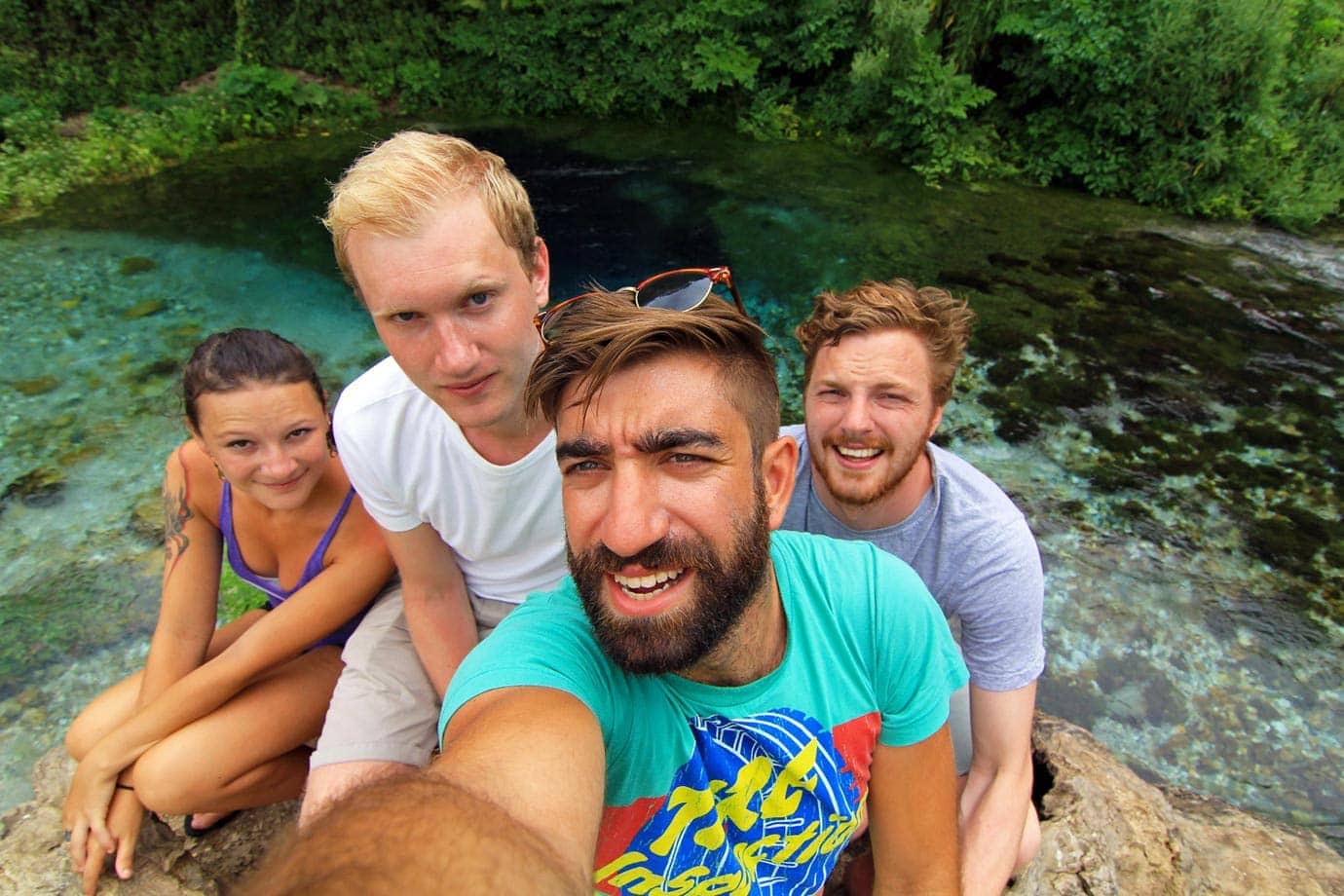
Tourist vs traveller. Is there any real difference between the two? Does it really matter? And why do people care?
I don’t know why, but arguing the difference between tourist and traveller is something that happens a lot more than you’d think when backpacking and travelling.
Everyone’s got an opinion on this one, and after years of being on the road myself, I thought I’d finally break my silence and wade into the debate. I’ve always found this such an interesting topic, and I’m really interested to hear what you guys think too.
Quoting Alex Garland , author of The Beach , he said:
I had ambiguous feelings about the difference between tourists and travelers – the problem being that the more I traveled, the smaller the differences became. But the one difference I could still latch on to was that tourists went on holidays while travelers did something else. They traveled.
That quote has always resonated within me, but the more and more I travel myself the more and more I believe it boils down to one fundamental difference; travellers care.
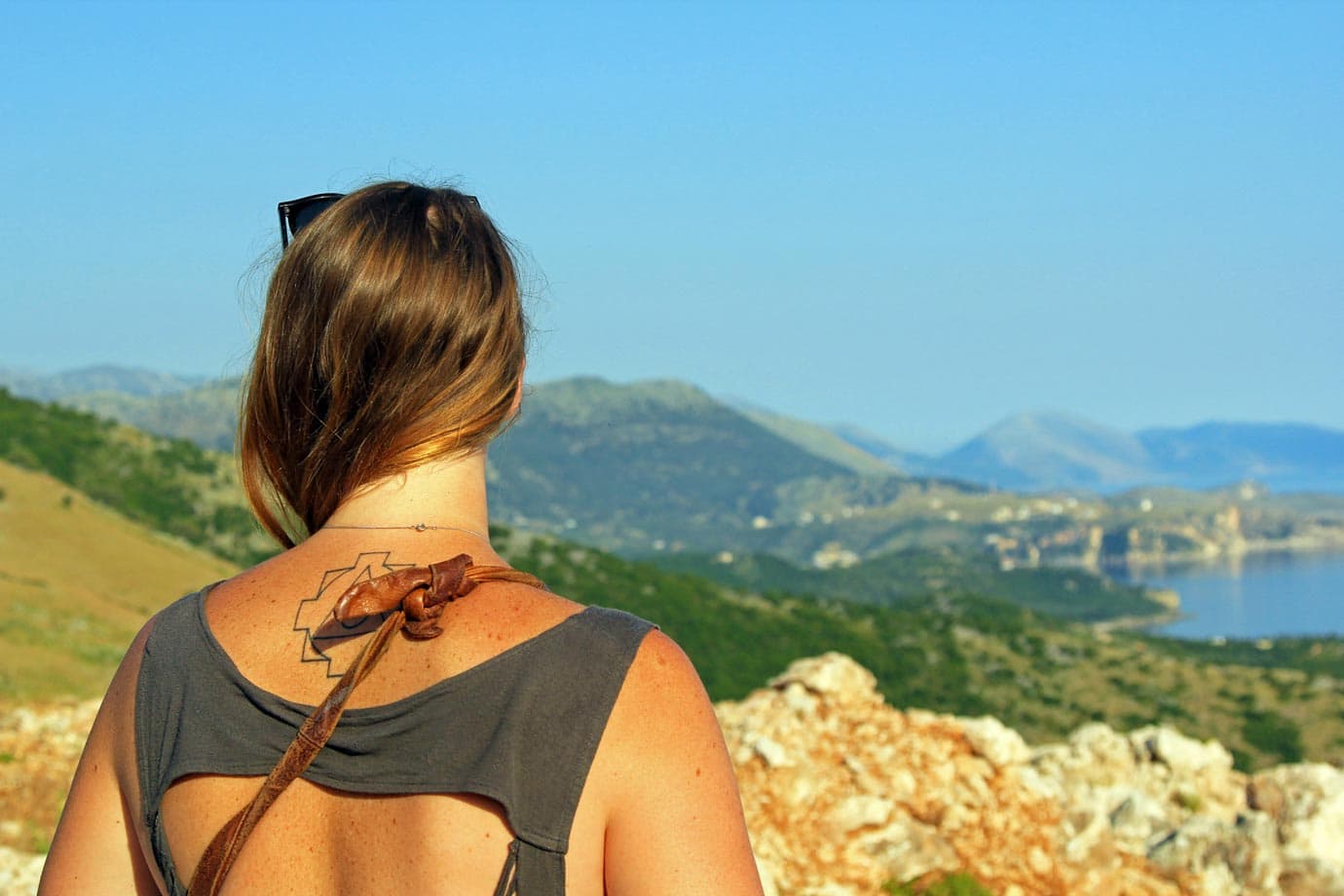
Travellers care more than you’ll ever realise
Travellers care about the culture and societies they are visiting. Travellers care about the people they are meeting, both locals and foreigners alike. Travellers care about the way they travel, they want to discover and explore but in a sustainable way. Travellers just care.
A lot of people argue one of the main fundamental differences between a traveller and tourist is education. Not in your own personal education, but the education of travelling. People use travelling as a way to learn about themselves as much as about their surroundings, whereas tourists use travelling as an escapism, a way to forget about themselves as much as the surroundings they’ve left behind.
The way I travel is I completely immerse myself in a country and a new culture. I make the effort to learn as much of the language as I can, I speak to the local people and ask about their background, the local history, the local politics. I try and leave as good of an impression of myself and the country I come from as possible while not being quick to judge theirs.
I do all of this not because I need to but because I want to, because I care.
It’s a pretty broad brush to tarnish all tourists with by saying they don’t care, but I just don’t think a lot of them do.
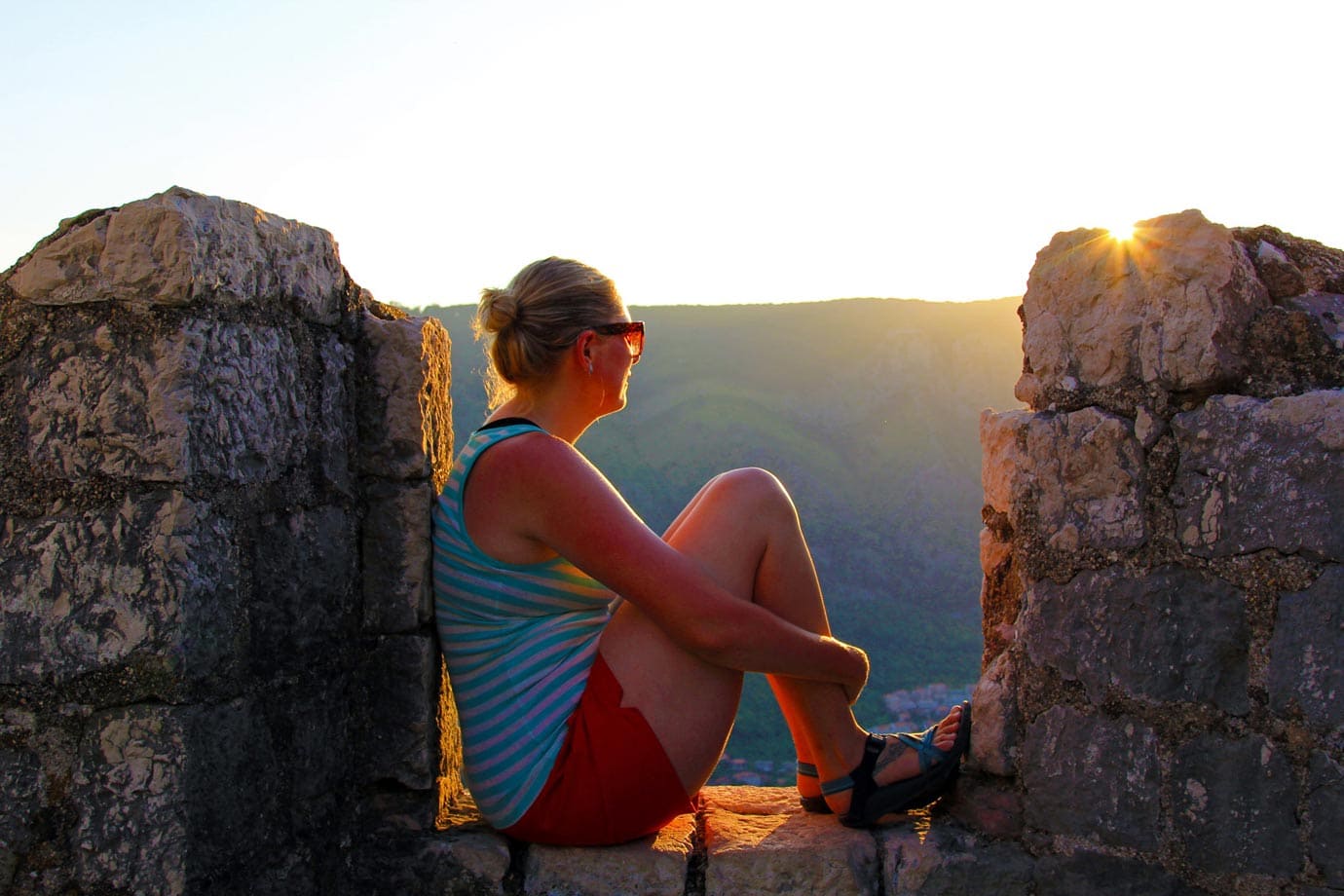
Is there really a difference between a tourist or traveller though?
This isn’t some pretentious middle class debate, and this isn’t travel snobbery.
I, personally, do think there is a difference between travellers and tourists (unlike a lot of people out there).
Gary Arndt from Everything Everywhere , one of the biggest professional travel bloggers out there, once responded to the same question stating:
There is no difference. It is a distinction used by pretentious people to make themselves feel superior to others. To the locals, no matter how long you’ve been traveling or whatever your mindset is, you are still a tourist. After two years on the road, I’m still a tourist when I show up somewhere new.
This isn’t about feeling superior to anyone. I actually agree; travellers often get high and mighty about being a ‘traveller’, and to a degree this itself is anti-travelling.
However, if there is a difference between travellers and tourists, then it is down to personal perspective, what the individual thinks. Obviously this is my opinion, this is what I believe.
Travelling is such a personal experience, so what other people do, what they see, where they go, it shouldn’t affect what you do or how you feel about travelling. So long as they care.
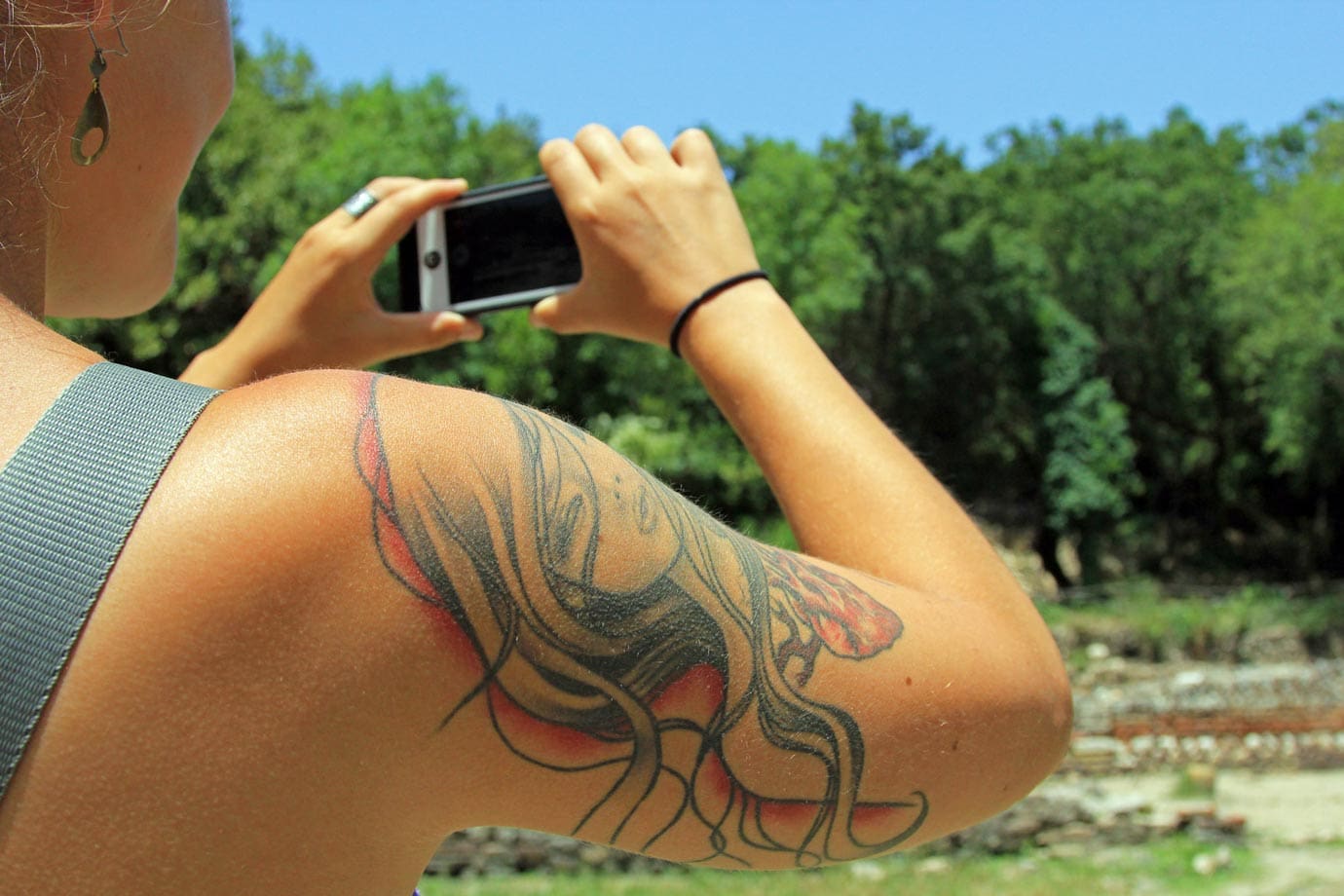
Tourist and traveller difference: My life as a traveller
In my opinion, more often than not tourists are only ever interested in seeing a country’s sites and attractions as opposed to seeing the people within it, often just to say they’ve been to a particular place, and I think that’s sad, and at times completely contradictory to what tourism is supposed to do, what tourism is supposed to be about.
As I write this I have just come from the beautiful and historic town of Kotor on the coast of Montenegro . It’s a place teeming with tourists and travelers alike.
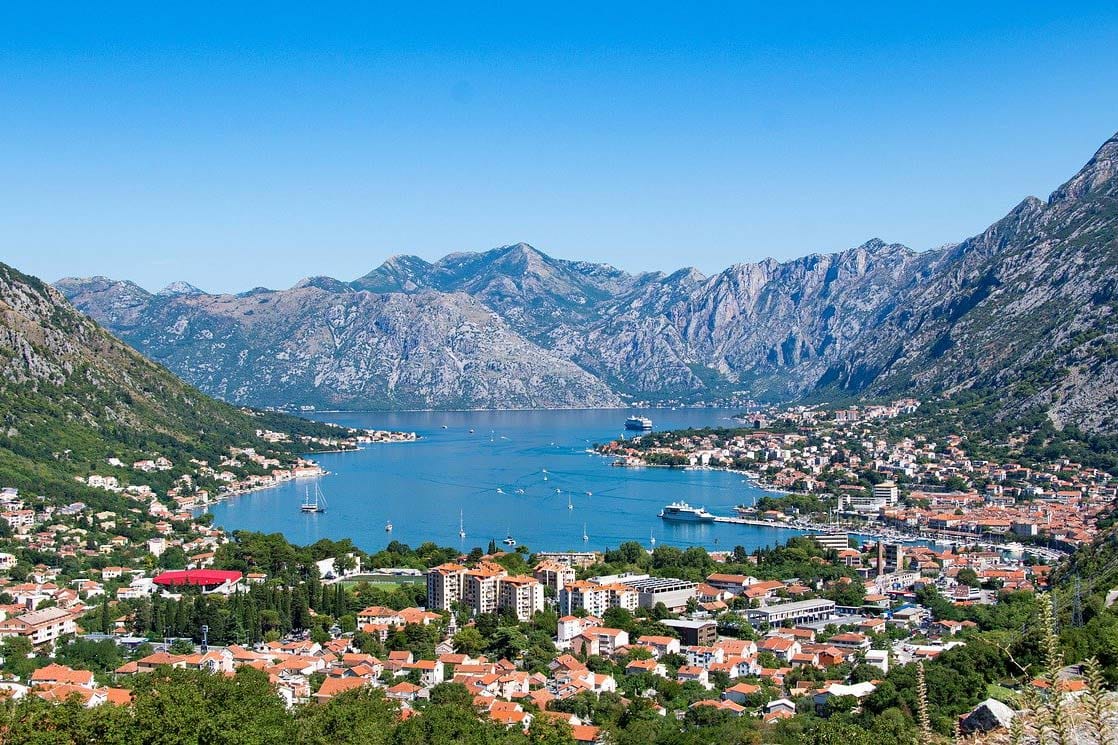
The town is so small I feel I could kick a football over its walls, yet every single day a new cruise ship moors up and thousands of passengers swarm within the walls, cluttering and clogging up the small side streets of Old Town.
At one restaurant I asked the waiter what he thought of the cruise ship passengers. He said: “They do nothing for the restaurant culture in Kotor. 99% of passengers have already eaten before they’ve left the ship, and they are all told to carry water with them, so they are not interested in restaurants. If anything, the large groups of them walking around Old Town put people off from dining outside.”
Walking around, you will see clusters of passengers all with a guide from the ship. They don’t use local transport, they don’t interact with the local people, and they rarely spend anything of notable worth. All in all, they just don’t care.
Kotor in the early morning and evening is a completely different place compared to the afternoon. Without the tourists, it is tranquil and charming. With them, it is something else entirely. I know which one I prefer.
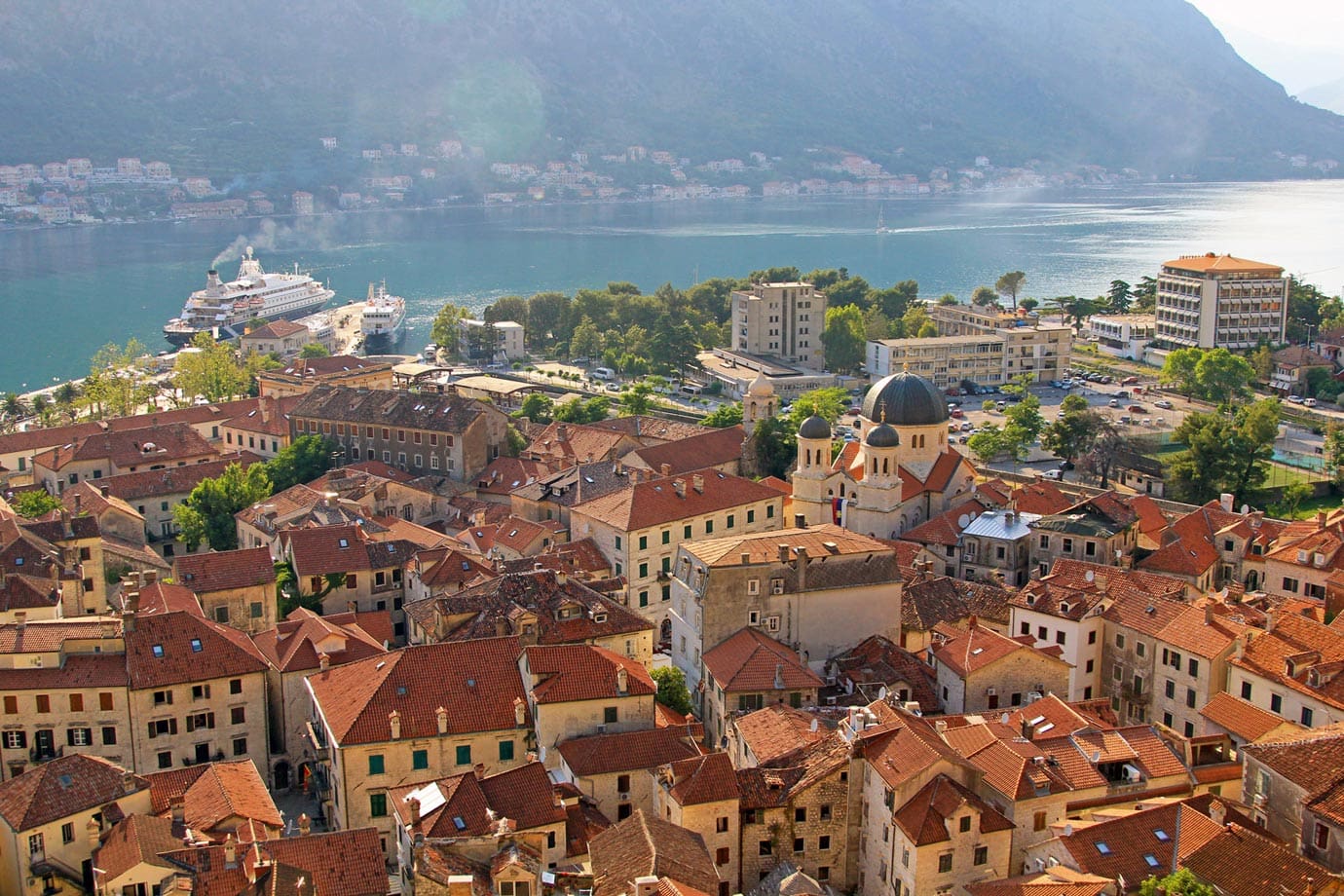
The real impact of tourists
One night, after everything had closed down, including all the bars, I found a group of locals celebrating the opening of a new shop.
Confident on rakia, the local fiery spirit, I finally asked them what they all thought of the type of tourists Kotor attracted.
One guy, Nikola, said: “They do more harm than good, but it is not their fault, it is the local council’s for allowing them to come in the first place.
“10 years ago, we were all happy. Everyone stayed up late and interacted with each other; a part of that culture has died.
“The local council was only interested in making money, and then the cruise ships came.”
According to local fisherman, fish stocks and with it their way of life and earning a living are down 10 times than what they were just a few years ago.
Also, a particular type of fish has become so rare it is thought to be extinct. It doesn’t take much to deduce the correlation coinciding with the arrival of the cruise ships and the pollution they bring, both in the forms of human pollution and environmental pollution.
This is a problem for both travelers and tourists.
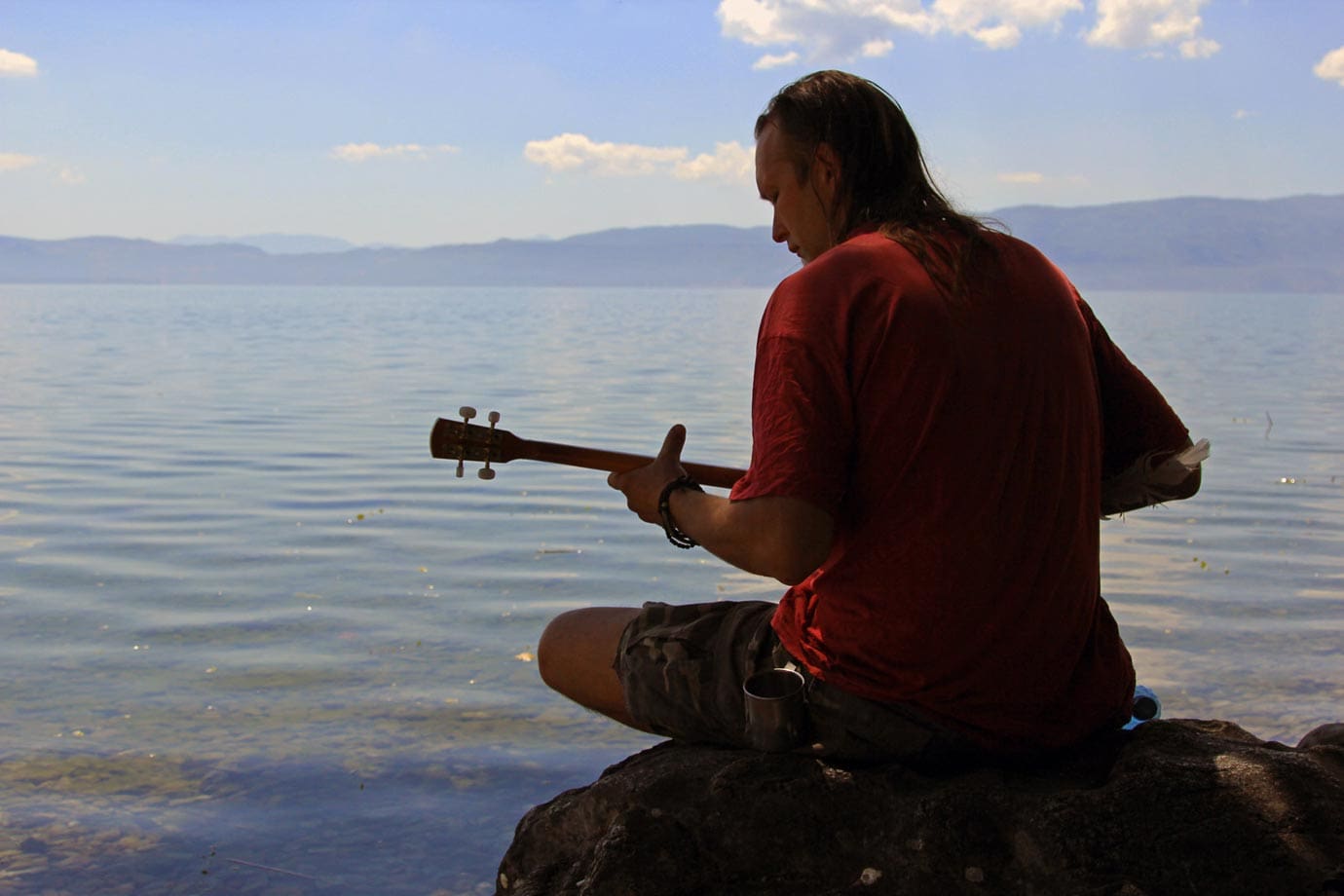
Traveler vs tourist quote
If there’s one quote to sum all of this up, it’s this one by Andrew Zimmern, a famous food writer:
Please be a traveler, not a tourist. Try new things, meet new people, and look beyond what’s right in front of you. Those are the keys to understanding this amazing world we live in.
Perhaps the hardest thing to deal with is as travellers there is very little we can do about tourists.
I guess the only thing we can do is to keep on being ourselves, to keep on travelling, to keep on caring. Or maybe it just doesn’t matter…
What do you think is the difference between a tourist and a traveller? I would love to hear your opinion so make sure you let me know in the comments below.
Also, make sure you read the truth about solo travel in Honduras and El Salvador and the world’s worst value tourist attractions for your next coffee break.
Like this blog post? Then make sure you Pin it!
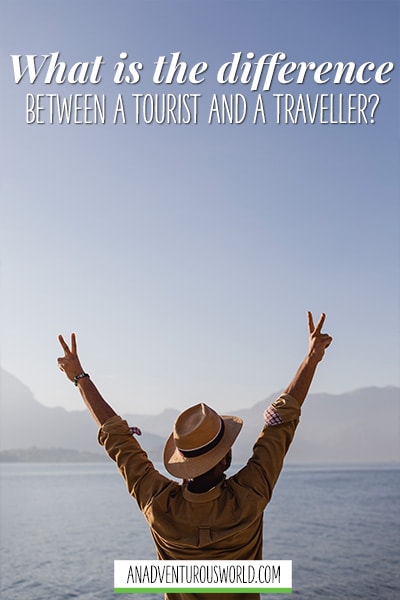
About the Author

Macca Sherifi is the founder of the multiple award-winning blogs An Adventurous World and the Great British Bucket List. Every month he inspires over 200,000 avid readers to travel the world.
View all posts
16 thoughts on “What is the difference between tourist and traveller?”
‘Tourist’ comes from the word ‘tour’ which is something which is organised. Package holidays and excursions are for ‘tourists’, where meals are provided for, or a local representative is available 24/7. A traveller is willing to step outside of his/her comfort zone and to immerse themselves in a different culture. Mass tourism (there’s that word again) has a negative impact on it’s environment and very often no positive impact at all (think Venice for example), whereas travellers contribute more to local economies by eating at local restaurants and staying at independent hotels. As author Robert Louis Stevenson once said… “I travel not to go anywhere, but to go. I travel for travel’s sake. The great affair is to move.” Travellers love the feel of motion under their feet. Tourists can’t wait to arrive at their destination.
Ah Scott, you’ve nailed it. I couldn’t have said it better myself. Thanks for the comment – I really appreciate it!
I love the quote from Gary Arndt. If we venture outside of our hometown, we are essentially “tourists” at some point – whether we like to admit it or not! I always ask why are things “travellers” value automatically “better” than what “tourists” do? There are lots of overlaps and I believe we shouldn’t have to be defined as one or the other. Thanks for sharing your views on this topic!
Oh I agree with you. I was being extremely facetious when I wrote this post (a couple of years ago now!) There’s such blurred lines between being a traveller and a tourist and I think fundamentally they’re the same thing. Expanding on your point, you get just as many annoying travellers as you do tourists! Always a good debate though!
“There is no difference. It is a distinction used by pretentious people to make themselves feel superior to others.” I don’t think that tourist is something humiliating. It is just two different meanings of the describing of someone who is going to the different city, country, anywhere. You may feel the difference only in the comfort that someone has and another refuses.
Yeah, safe to say we agree with this one completely! As mentioned, we feel this is perfectly summed up in “The Beach” by Alex Garland. Always an interesting debate though!
Kudos to a nicely written article. I agree with you that there are differences between travelers and tourists. But I don’t think that these differences are as clear cut, black and white. There are tourists who care, and travelers who don’t. There are many ‘travelers’ here in Southeast Asia who come to get drunk, and have ‘tourist’ mentality you’ve described. I’ve been traveling for over 10 years and lived in many countries; I enjoyed learning about new culture, picking up new languages, and growing with each experience. I don’t think I’m a tourist, but I’m not a traveler either, as ‘travel’ connotes a destination.
Thanks for the comment Noel; I really appreciate it. I completely agree with you and it is not clear cut black and white. At the end of the day, we’re all people doing the same thing, we’re all trying to see a country in our own way. It doesn’t really matter whether that’s for a few days, a few weeks or a few years, as long as we’re doing it, you know?
Yes this is your opinion and of course your entitled to it, but Gary is right. Here is the problem; you say your are not pretentious but you certainly sound pretentious.
Definition:
To be pretentious is to make a claim or put on an act to:
A) Fit into a group.
B) Appear “better” than you are or than others.
So you are a “traveler” not a “tourist” and travelers “care” and tourists don’t. Kind of nails the definition, doesn’t it?
Fair play Rob! I can’t really argue with that definition. I really didn’t mean to come across as being pretentious; it was just a point of view that I wanted to express and to spark (another) debate. This is a subject that is quite close to my heart and I have found people’s comments fascinating. At the end of the day, there really isn’t much difference between the two. As long as people are travelling and they are enjoying it, who’s to say they’re one thing over the other.
I actually resonate more with Gary’s definition (sorry!). To say that travellers care implies that tourists don’t. Sure, some tourists don’t care, but there are many that do (and, I suspect, many travellers that don’t). A difference in care is not the distinction in my book, and I’m not really sure there is a major difference between tourists and travellers – it all just boils down to semantics IMHO.
No worries Paul! When I took the stance “travellers care, tourists don’t”, I knew it was a very broad brush to use, but I decided to go with it anyway. I completely agree with you though. I have met so many travellers who don’t care, and tourists who do. Perhaps that’s why there really isn’t much of a difference between the two. As you say, it all boils down to semantics.
Having spent the past 9 years as both a tourist and traveler, I’ve found myself caught up in this debate more times than I can count. At this point, even the words in the argument have lost their meaning. A traveler is always a tourist; even if he/she becomes “localized.” A tourist is always a traveler, because the very act of not being at home means they’re traveling.
The issue, in my opinion, is trying to put word-based labels on a lifestyle choice; and getting offended when someone calls you the wrong one. The words have lost their meaning but the sentiment remains the same. Instead of arguing tourist vs traveler, we should all embrace whatever form of travel works for us. For many of those people on the tour ship, that’s the only way they will ever feel comfortable enough to see the world. And sure, they see a very limited, fake slice of it, but at least they got off their couches. (not that I’m defending cruise ships or their impact on local communities)
Anyway, now I’m rambling… maybe that means I should write my own article on the topic. Thanks for the inspiration, and thanks for making my brain work this morning 🙂
Thanks for your comment Greg, and I’m glad I got your brain working in the morning! Always a hard task! I actually couldn’t agree with you more. As long as people are travelling, and as long as they’re enjoying it, that’s the most important thing in my eyes. Let me know if you do write an article on the topic; I’d love to see your point of view.
Great post. I couldn’t agree more. For me, travelling is really about getting under the skin of a country, knowing its people, customs and culture. I’ve seen so many photos from other Travellers and they label a picture ‘a nice temple in …’ with little other info, like they don’t know what it means to be there.
Thanks for the comment and support Abbi! I agree with you, travelling is all about getting under the skin of the country. Too many people pass through a country like a ghost; in my opinion, it’s so much better to really immerse yourself in different cultures and societies.
Leave a comment Cancel reply

Some articles on Fair Dinkum traveller may contain compensated links. Please read the disclaimer for more information.
Traveller vs Tourist: Exploring the Essence of Your Journey
Feb 13, 2024 | Feature | 0 comments

Do you enjoy immersing yourself in the local culture or prefer to stick to well-planned tours? This is often the basis for debating whether you are a traveller or a tourist.
The main difference between these two exploration styles is their impact on the individual and the places they visit.
In this article, we will delve into the details of each approach, examining how they can positively impact the world while providing fresh perspectives and experiences for those who embrace them.
Discover whether you align more with the spontaneous explorations of a traveller or the structured sightseeing of a tourist as we explore their impact on the places they visit and the experiences they cherish.

Traveller vs Tourist: Exploring the Essence of Your Journey.
Key Takeaways of the Traveller vs Tourist Debate
- The difference between tourists and travellers often lies in their approach: tourists may follow an itinerary and prioritize comfort, while travellers seek authentic experiences and local immersion.
- Engagement with local culture, such as learning the language, eating local cuisine, and respecting customs, can significantly enrich travel experiences and contribute positively to the community.
- While enjoying the journey, mindful accommodation choices and the impact on local economies are important, and labels like ‘tourist’ and ‘traveller’ should not overshadow the personal nature and authenticity of one’s travel experience.

Traveller vs tourist mindset.
Exploring the Traveller and Tourist Mindsets
While both tourists and travellers explore the world, their approaches often differ. Tourists and travellers differ in their mindset and approach to exploring new places. Tourists often use travel as escapism and comfort, sticking to the itinerary and ticking off lists of iconic sights. On the other hand, travellers seek to enrich their experience by soaking in experiences and discovering off-the-beaten-path locales.
Regardless of their engagement styles, which some people argue about, both parties significantly impact the local economy of the places they visit.
The Quest for Authenticity: Traveller Makes an Effort
Travellers often go the extra mile, literally and metaphorically. They demonstrate a commitment to understanding and respecting local culture by investing time in research and engaging in community host programs. Their journey is marked by an effort to genuinely connect with local traditions and heritage, reflecting their quest for authenticity.
Sightseeing vs. Immersion: Tourists Stick to the Itinerary
Tourists tend to prioritise visiting famous landmarks, sticking to structured travel plans centred around these popular attractions, which can be considered tourist sites. This approach to travel, rooted in historical travel patterns, offers a curated experience of a destination, with scenic and themed journeys emerging to cater to this preference.
Comfort Zone Boundaries: Tourist or Not a Tourist?
However, it’s worth noting that the distinction between a tourist and a traveller isn’t always clear-cut. While travellers might venture outside their comfort zone more frequently, an appreciation for familiar amenities doesn’t preclude a tourist from embracing new experiences.

Travel abroad and partake in volunteering programs worldwide to give back to the communities.
Cultural Engagement: More Than Just a Visitor
To be more than a mere visitor, one must actively engage with local culture, respect societal norms, and uphold environmental responsibility. Here are some ways to do so:
- Learn the local language
- Participate in local farming and crafts
- Support local businesses and artisans
- Respect cultural traditions and customs
- Minimize your environmental impact
- Form lasting bonds with the communities you visit
By following these guidelines, travellers can contribute to the preservation of cultural heritage and respect for cultural norms, leading to a more meaningful and responsible travel experience.
Language as a Bridge: The Effort to Speak Local Words
Mastering even a few local language words can significantly enhance the overall experience. It allows travellers to:
- Connect genuinely with the community and its culture, fostering more meaningful and authentic experiences
- Become more independent and confident
- Open doors to honest conversations with locals
- Bridge cultural gaps
By speaking the local language, travellers can make the most out of their trip, create lasting memories, and connect with local people.
Dining Like a Local: Why a Traveller Eats Local Food
An integral part of travel is relishing local cuisine, which is closely linked to the cultural experience and offers a glimpse into the local heritage. Trying local dishes is a form of cultural immersion, providing insight into the place’s way of life and history.
Eating at small, local restaurants also ensures your money goes directly into the community, providing an authentic culinary experience.

Cultural engagement and exploration.
Accommodation Choices: Where You Stay Matters
Your choice of nightly accommodation can significantly shape your travel experience. From glamping to staying in traditional local housing, your choice of accommodation can set the tone for a truly unforgettable vacation or business trip. After all, understanding your personal accommodation needs is crucial in finding the perfect place to stay.
Beyond the Hotel Experience: Finding Local Charm
Opting for alternatives to traditional hotels can offer deeper insights into local life. Choosing accommodations like Spanish villas, Airbnb, or even boutique hostels can provide a unique and personalized stay, enhancing the authenticity of the travel experience.
Safety and Comfort: Balancing Adventure and Well-being
Undoubtedly, while seeking adventure off the beaten path, safety and comfort remain supreme. Considering the following factors is crucial for a positive and memorable stay:
- Safety features of accommodations
- Access to transport
- Access to cash
- Access to communication
Shared experiences from other travellers can provide insights into finding safe and comfortable accommodations in less explored areas.

. Accommodations like Spanish villas, Airbnb, or boutique hostels can provide a unique and personalised stay.
Economic Impact: Supporting the Community You Visit
Travellers can positively impact local economies by supporting small businesses and local organizations. Increased visitor spending results in higher sales tax revenue, which can be reinvested into the community, leading to economic growth in the areas they visit.
The demand for better infrastructure and expanded service offerings due to tourism serves the visitors and improves the quality of life for residents.
Tourism Industry Realities: The Double-Edged Sword
Yet, it’s critical to remember that tourism can have positive and negative impacts. It can exacerbate local issues such as overcrowding, poor infrastructure, and living conditions, leading to an uneven income distribution, increased consumption of natural resources, and substantial negative ecological impacts.
But the coin has another side: tourism can contribute to cultural safeguarding and revitalization, foster mutual respect, and improve international relations.
Making Conscious Choices: How Your Money Talks
By making mindful decisions, travellers can actively contribute to positive change. Here are some ways to do so:
- Consuming local food
- Staying in eco-friendly accommodations
- Supporting female-owned enterprises
- Donating to local charities
Every decision can help promote social responsibility and empower local communities.

The positive economic impact of travel.
Navigating New Territories: Instincts Over Google Maps
Transitioning from economic implications to exploration, it’s worth discussing how to navigate unfamiliar territories. While Google Maps may be handy, relying on instincts can lead to more spontaneous and explorative experiences.
Intuition can serve as a vital tool for safety, and choosing to navigate without technological assistance can enhance engagement with the local environment and culture.
Discovering the Uncharted: A Traveller’s Joy
Embarking on a journey off the beaten track can be a thrilling experience. Exploring lesser-known locations often leads to more meaningful experiences, new friendships, and transformative experiences. Plus, the anticipation and delight of discovering hidden gems before they gain popularity give many travellers a sense of pioneering and the pleasure of sharing these finds with others and immersing themselves in a new culture.
The Reliance on Technology: When to Put Away the GPS
However, determining when to rely on technology and when to trust our instincts can be a challenge. Avoiding using GPS for navigation can prevent travellers from being confined to well-trodden paths, enabling more unexpected and personal discoveries.
The challenge of finding one’s way without a GPS can boost a traveller’s confidence and foster reliance on one’s abilities to navigate.

Navigating New Territories: Instincts Over Google Maps.
Social Dynamics: Solo Exploration vs Group Excursions
The social interactions during travel play a significant role in shaping the overall experience. Whether you prefer the flexibility of solo travel or the social experience of group travel, each has distinct advantages and opportunities for personal growth.
The Power of Solitude: Personal Growth on the Road
Solo travel offers a unique set of advantages, including:
- A personalized itinerary
- Improved self-awareness
- Enhanced decision-making abilities
- Independence and confidence
- Deepened engagement with the culture and environment
The Group Tour Debate: Convenience vs. Authenticity
Conversely, group tours provide ease and potential cost savings for large groups. They handle all transport, accommodation, and tickets for attractions, making group travel generally cheaper than individually. However, the structured nature of group tours may limit opportunities for personal exploration and authentic experiences.

Social Dynamics: Solo Exploration vs Group Excursions.
The Label Debate: Rejecting Travel Snobbery
However, it’s essential not to get entangled in the terminology. The distinction between ‘traveller’ and ‘tourist’ often leads to a sense of elitism and superiority in travel, which can overshadow the true essence of journeying. After all, travel motivations are varied and should not be subjected to the narrow classifications imposed by travel snobbery.
Why Labels Don’t Define Your Journey
Whether identifying as a tourist or traveller, it’s vital to remember that these labels don’t necessarily reflect the real difference a traveller makes in the quality or authenticity of the travel experience. Each individual has interests and comfort levels that should not be deemed superior or inferior.
After all, travel experiences are personal and cannot be judged by labels.
From Instagram Feed to Real Life: Staying Present
In today’s digital age, it’s tempting to focus primarily on capturing ‘Instagrammable’ moments during travel. But the real adventure lies in the present moment, beyond the camera lens. Navigating without technology can enhance engagement with the local environment and culture, leading to more profound, authentic experiences.
A Summary of a Traveller vs a Tourist
From the characteristics of travellers and tourists to the impacts of travel choices, we’ve explored the essence of journeying. Whether you’re a traveller, a tourist, or a bit of both, remember that the joy of travel lies in the experiences and memories you create, not the labels you wear.
The beauty of exploring new territories, engaging with different cultures, and stepping outside your comfort zone is a universal aspect of travel that transcends these definitions. Each trip offers unique opportunities to learn, grow, and see the world through a new lens.
So, pack your bags with an open mind and a heart ready for adventure, and let the journey transform you as much as you impact the destinations you visit.
Related Content to Fair Dinkum Traveller!
- Budget Airlines vs Major Airlines: Is Budget Always Cheaper?
- Hotels vs Camping: Who is Your Winner?
- Holiday Apartment vs Hotels – What is your preferred Holiday Option?

Which a you, a traveller or a tourist?
Frequently Asked Questions
What is the difference between a traveller and a tourist.
The difference between a traveller and a tourist is that a traveller goes to different places and may not return to the previous place. In contrast, a tourist temporarily visits a new place for leisure. So, essentially, a traveller is more about the journey, and a tourist is more about the destination.
Is every tourist a traveller?
According to the Merriam-Webster dictionary, the terms “tourist” and “traveller” are nearly the same, as both involve making a trip or journey for pleasure or culture. Therefore, every tourist is essentially a traveller.
What is the traveller vs tourist debate?
The debate between “traveller” and “tourist” revolves around the image they evoke; a traveller is seen as brave and visiting fewer mainstream places, while a tourist is perceived as following guidebooks to well-known sights.
How can travellers support local communities?
Travellers can support local communities by spending money at small businesses, getting involved with local organizations, and making thoughtful spending decisions. This helps to contribute to the local economy and community positively.
Why is it beneficial to navigate without technology?
Navigating without technology allows for more spontaneous and explorative experiences while boosting confidence and independence in one’s steering ability. It can lead to a deeper connection with the environment and self-reliance.
Submit a Comment Cancel reply
Your email address will not be published. Required fields are marked *
This site uses Akismet to reduce spam. Learn how your comment data is processed .

Get Your Free E-Book Today!
Stay in the loop with our monthly newsletter! Get expert travel tips and destination advice, and snag a free E-Book!
You have Successfully Subscribed!
We noticed you're visiting from United States (US). We've updated our prices to United States (US) dollar for your shopping convenience. Use Australian dollar instead. Dismiss

- GENERAL TRAVEL
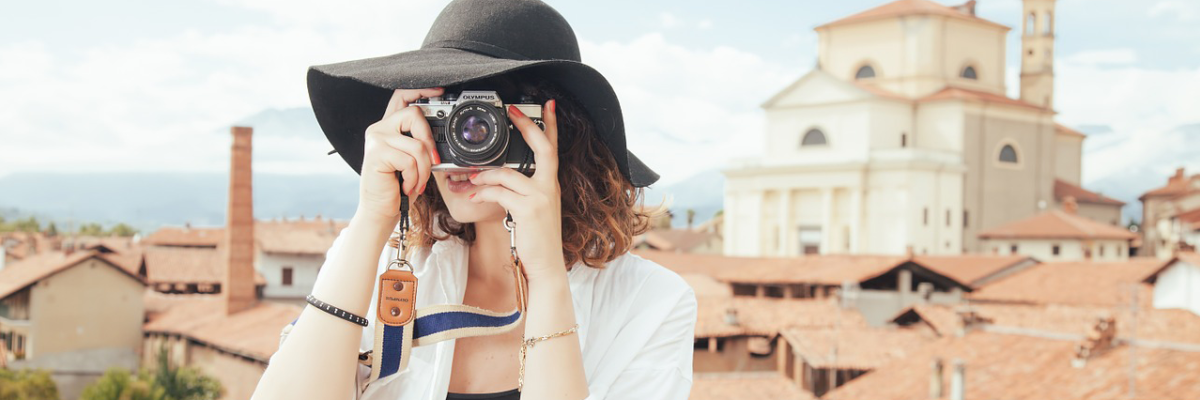
Is There Really a Difference Between "Travelers" and "Tourists"?

Julia is an avid traveler, lifelong artist, theater geek, interior designer, future author, and o...
- button]:border-none [&>button]:bg-white [&>button]:hover:cursor-pointer [&>button]:hover:text-cyan-400"> button]:hover:text-cyan-400 [&>button]:bg-white hover:cursor-pointer" height="1em" width="1em" xmlns="http://www.w3.org/2000/svg">
We’ve all seen him: the man with the sunglasses and cap, rocking socks and sandals, fanny pack on the side, with a map open in hand. He looks around, confused, and checks his guide book again. Then, salvation: a woman in a bright t-shirt can be seen down the street, waving a flag. Relief floods the man’s face as he trots off in the correct direction. He stops to snap a quick photo of a sidewalk café, then continues his scuttle.
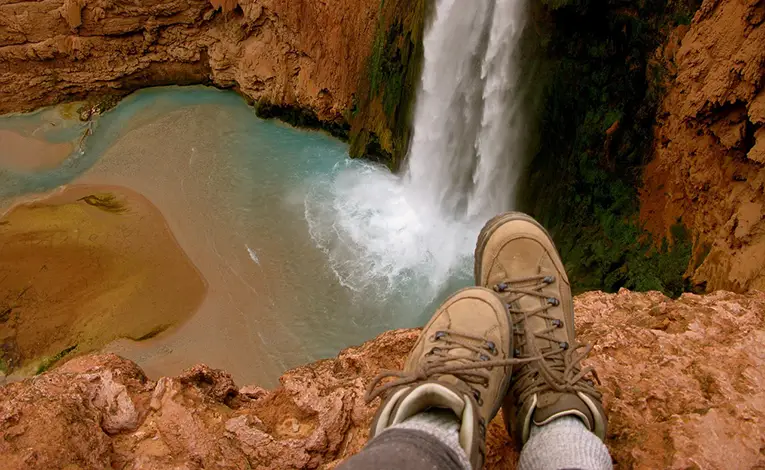
Travelers take their time and wander off the beaten path.
I can’t be the only one that rolls my eyes and gives an involuntary sigh. Tourists .
But, wait. What is a “tourist”? What makes “tourists” tourists? What makes them different from you or me, a proud traveler? Is it really the geeky footwear and restaurant reservations?
The divide between tourists and travelers seems to grow every day, as the technological and monetary gap increases between generations and cultures. However, it’s inaccurate to say that all older generations are tourists, and all disoriented millennials are righteous travelers. So, what accounts for the main difference between the two?
First, let’s inspect some of the major components of travel, and the differences between the two groups of voyagers.
ITINERARIES:
Tourists make a plan of their trip, every minute of it outlined. They know where they’re headed, and there’s a list of sights to be checked-off. They go directly from point A to B, then end with E and F (sorry, D and X). Organized travel gets kudos points for being simple.
Travelers realize that the journey is worth more than the destination. They deviate, take wrong turns (sometimes on purpose!), change their minds, go with the flow, jump over fences, drive against traffic, and have no idea where they’ll end up. Spontaneity is embraced, and organized tours are the devil.
COMPANIONS:
Tourists are usually found in masses, seen with tour groups, on reserved buses, following rubber duckies on top of radio antennas.
Travelers walk solo, with a worn-out walking stick to lean on and a diary to talk to. While they love the flexibility and spontaneously of solo travel, they’re ready to exchange tips with fellow travelers and mingle with locals.
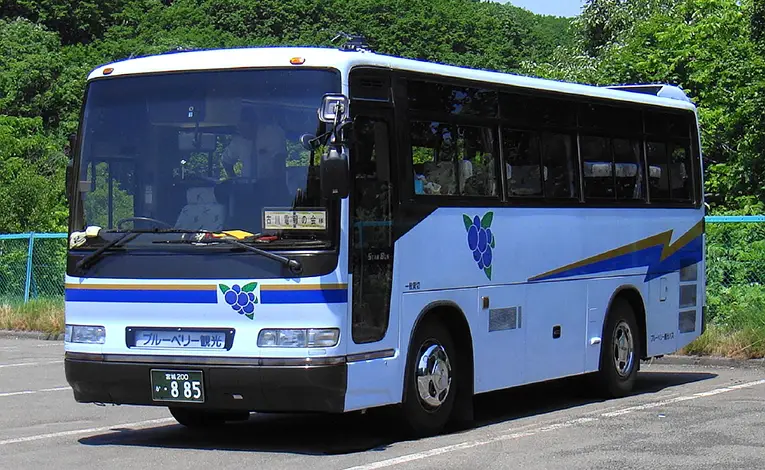
Tourists opt for the convenience and comfort of air conditioned, private tour buses.
Tourists prioritize cramming in as much as possible into a short amount of time, and every minute is planned. The more sights, the better.
Travelers move at a slow pace, preferring to experience and learn, rather than merely see. The more time in one place, the better. How else to understand local traditions and pick up a few phrases in the native tongue?
Tourists get homesick thinking about their own beds. They try to seek the familiar and surround themselves with similar minds, common languages, and the comforts of home. They go home to relax after stressful trips.
Travelers realize that “home” is not a physical place, but, rather, a state of being. Home can change every day, as it is built upon perspective, a sense of belonging, and potential (brief and adopted) families. However, staying anywhere long enough usually inspires restlessness and renewed desire to see more.
PHOTOGRAPHY:
Tourists are on an ambitious mission to get as many selfies in front of as many famous sights as possible. Every meal must be documented, every location must be “checked-in” to, and it seems that most of the trip was spent behind the iPhone’s screen.
Travelers take photos of other places, not their faces. They hike to the edge of the world for the experience, not to prove it to anyone else. They have no problem setting up a tripod and waiting for the perfect sunrise; one good photograph is worth a thousand point-and-shoot clicks.
Tourists are proud of flaunting t-shirts that advertise the cities they visited. Souvenirs are bought in gift shops, and the only trace tourists leave of themselves is the occasional plastic water bottle.
Travelers stick with carrying culturally-significant items and stories when leaving countries, most of these provided by new-found friends, local organizations, and interaction with the environment. They leave only their footsteps in new places and their thumbprint on a stranger’s heart.
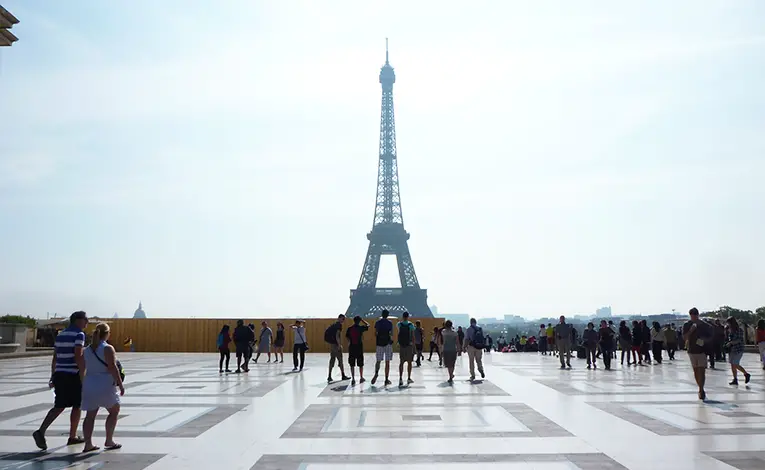
Tourists center itineraries around “must-see” and major attractions
GUIDE BOOKS:
Tourists are always checking out the “Top Ten Things To Do and Places To See.” They listen to restaurant recommendations, are drawn to monuments, visit museums, follow trails drawn on maps, and read their guide book.
Travelers are also usually aware of the top sights and activities. The difference is that they stay away from them. Travelers are more interested in going down unmarked alleyways, trying new café’s, and writing their own personal guidebook.
TRANSPORTATION:
Tourist tend to opt for air-conditioned taxis, when not being shuffled around in big tour buses. They prioritize comfort and speed.
Travelers treat the transportation as part of the journey; they are patient and prefer to move slowly. They get into unknown cars, opt for the longest train journeys, and cram into collectivos . What better way to make a friend than by having someone’s goat sitting in their lap?
Tourists view travel as an escape from life; a getaway of fun and relaxation. There’s a general fear of the unknown that stems from a belief that their own lifestyles and beliefs are superior to others’. They stay in comfort zones and look for traces of home abroad.
Travelers understand that travel is a lifestyle, not something to be put on a calendar for ten days. It’s a mindset to seek the unknown, learn from the world, and mingle with local cultures.

Travelers prefer the journey, and opt for the long way home.
Tourists check in luggage, pack a shirt for every day, and invest in the latest fashions. They can easily be spotted wearing brightly-colored North Face sweaters and tennis shoes, and fanny packs are potential accessories.
Travelers focus on the essentials and neutral colors. They carry their home in their backpack (and still manage to keep it under 10 kg.), ready to sleep anywhere and to tackle any sort of adventure.
ACCOMMODATION:
Tourists stick to hotel chains that have been carefully-reviewed, offer air conditioning, and have hot water. They get excited over cable TV and write a detailed complaint if there’s a hair in the sink or fly in the window.
Travelers are grateful for a roof over their head, but don’t mind sleeping under the stars when the weather permits. Wi-Fi and hot showers are five star luxuries, and free breakfast always gets a second glance. They surf on couches, cram together in hostels, and are experts at setting up tents.
In short, both “travelers” and “tourists” are people that go to foreign lands. However, the purpose and mentalities of the traveling are drastically different, one relying on convenience and the other embracing new experiences. Tourists travel fast and tend to base their travels around money, while travelers move slowly and invest time.
Is one better than the other? Is coexistence possible between these two groups? Is one right and one wrong?
And so we ask... does it really matter?
In the end, we are all people that are sharing the world together, marveling at its spells and seeking new sights. As long as we treat others with respect (which is a good rule to follow, regardless of if we’re speaking to our neighbor or to a shopkeeper halfway across the world) and are aware of our place in the world, our actions, and their consequences, there’s no crime in opting for skyscraper suites instead of mosquito-infested hammocks. Just make sure service workers are treated ethically and hang your towels on the towel rack to save water.
The beauty of travel is that it’s a personal experience; it’s not a tournament, and there are no winners.
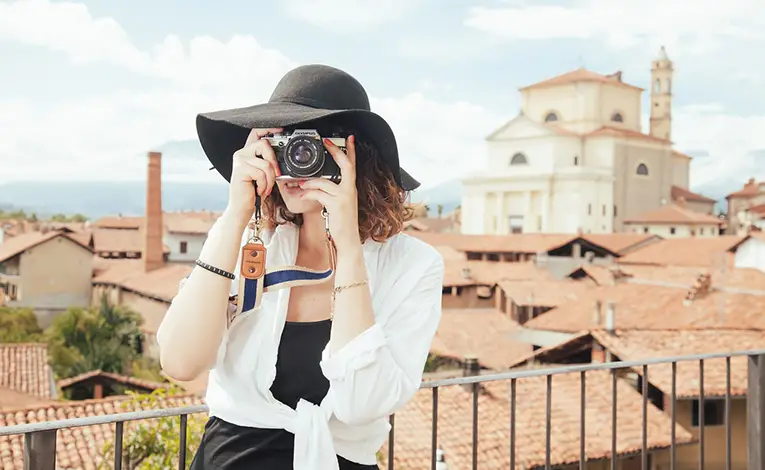
Tourist or traveler, it doesn’t matter as long as you’re seeing the world!
Sure, I think that cultural immersion and language acquisition are more important than getting the perfect selfie, but who am I to judge? There’s probably no sense in spending eight days dusty, on the side of the road, getting from one insignificant town to the other, before giving up and jumping on the next bus that’ll take me to Belgrade (and a shower). Yet, for some reason, it made sense at the time, and I don’t regret a single step. It’s all a learning experience.
It is seen that tourists explore places, while travelers throw spiritual and mental explorations into the mix. It’s personal preference, and circumstances can’t always be defined (and shouldn’t be judged). The woman that is sitting at a beachside pool probably deserves a week off after raising three kids, just as much as that backpacker earned enough karma to be picked up from the side of the road.
At the end of the day, we’re all going to be watching the same sunset. The important thing is to enjoy it, whether we’re wearing socks and sandals or weather-worn hiking boots.

Explore Programs on GoAbroad.com
Related Articles
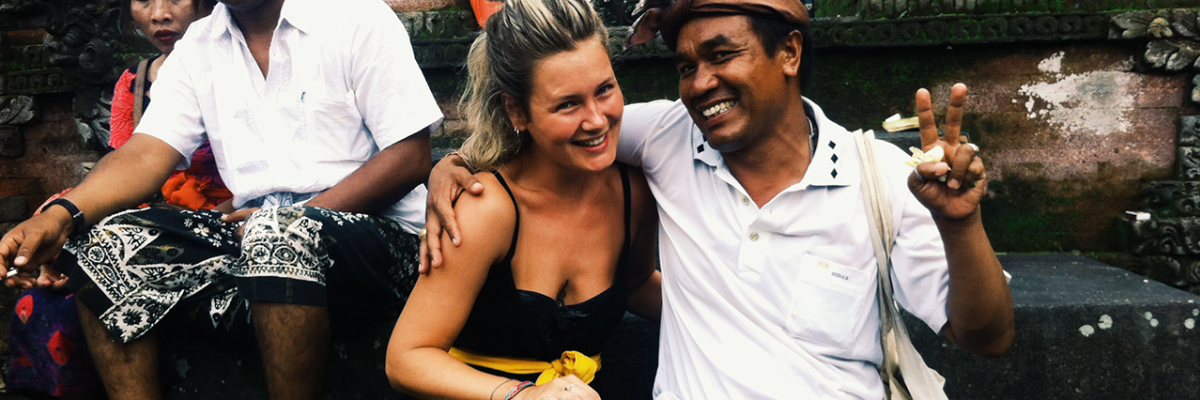
By Raquel Thoesen | 4 days ago
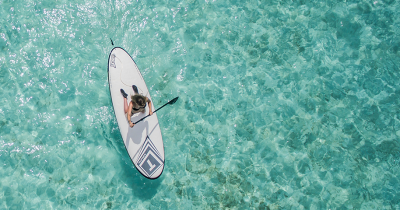
By GoAbroad Writing Team | 4 days ago
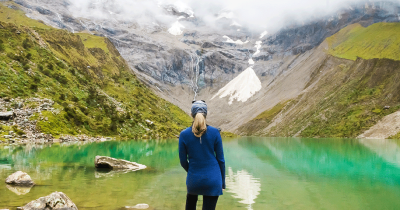
By Elizabeth Gorga | 5 days ago
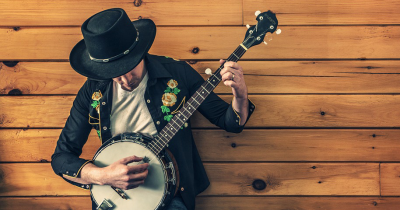
By Petrina Darrah | 5 days ago
Popular Searches
Study abroad programs in italy, study abroad programs in spain, marine biology study abroad programs, study environmental studies abroad, fall study abroad 2024, spring study abroad programs, recommended programs.

2566 reviews
International TEFL Academy

1682 reviews
International Volunteer HQ [IVHQ]

1905 reviews
MAXIMO NIVEL

563 reviews
Intern Abroad HQ
For Travelers
Travel resources, for partners.

© Copyright 1998 - 2024 GoAbroad.com ®
- Study Abroad
- Volunteer Abroad
- Intern Abroad
- Teach Abroad
- TEFL Courses
- Degrees Abroad
- High School Abroad
- Language Schools
- Adventure Travel
- Jobs Abroad
- Online Study Abroad
- Online Volunteer Programs
- Online Internships
- Online Language Courses
- Online Teaching Jobs
- Online Jobs
- Online TEFL Courses
- Online Degree Programs
- Organizations
- Planning & Activities
- Product & Services
- Structure & Systems
- Career & Education
- Entertainment
- Fashion & Beauty
- Political Institutions
- SmartPhones
- Protocols & Formats
- Communication
- Web Applications
- Household Equipments
- Career and Certifications
- Diet & Fitness
- Mathematics & Statistics
- Processed Foods
- Vegetables & Fruits
Difference Between Travelers and Tourists
• Categorized under Language , Words | Difference Between Travelers and Tourists
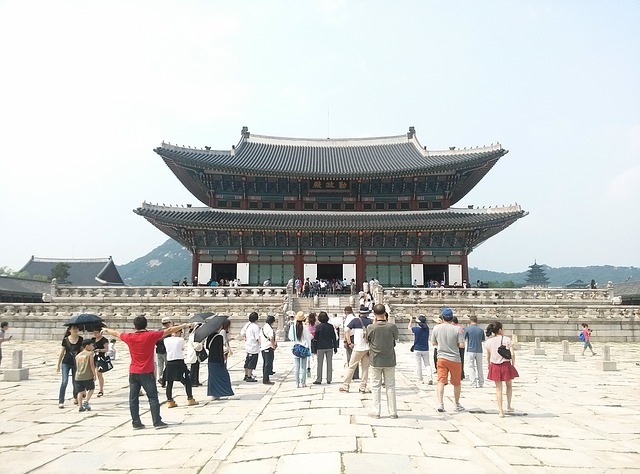
Travelers and tourists are both people who travel to different locations. The difference is that they have different connotations and that one is a broader term than the other. All tourists are travelers, but not all travelers are tourists.
The word ‘traveler’ simply means someone who travels. ‘Travelling’ itself means going from one place to the other, but it most often means going on a long journey. It isn’t very common to describe yourself as travelling when all you’re doing is going to get groceries. In the UK and Ireland, it can also mean someone who leads a nomadic lifestyle, always moving from place to place. ‘Tourist’, on the other hand, is a very specific word. It means someone who temporarily travels to another location just to enjoy the new place.
When describing people who travel to other countries, there are a few categories they can fall into. Some people have to travel for business, such as when they go to have a conference. Other people go to a place in transit. For instance, someone who wants to go from the US to Tibet would probably have to change planes in China. They would be travelling to China, but it wouldn’t be their final destination. Other people will go to places for charitable work, such as helping out with relief and aid after a major disaster. The last category is travelling for pleasure. This can mean anything from going to another country to enjoy the landscape to going to a theme park or tourist trap.
Tourists are specifically people who go to another place for pleasure when that’s the main goal of the trip. If a businessman were to take some time on his trip to experience the landscape of the place he’s in, then he wouldn’t be a tourist, since that wasn’t the purpose of the trip. Someone who travels for pleasure and takes some time to do some business work would be a tourist.
There are some who divide people who go somewhere for pleasure into travelers and tourists. According to those definitions, tourists are shallow people who care more about boasting that they were in a place than actually experiencing it, while travelers are people who blaze new trails and experience a much deeper connection with a place by going to the exact same attractions that the tourists go to, but more deeply. This is because the people who created this definition are all self-described travelers.
Tourism has gained a bit of a bad reputation. Some tourists will go to places and become a nuisance. For instance, in the United States, the Quileute reservation was damaged by tourists, though that is an extreme example. Other people will act like the stereotype of tourists. However, the majority of tourists do not – it is just far more common to hear about the horror stories than about the people who don’t do anything worth complaining about. Still, because of those people, some don’t want to be associated with the word ‘tourist’ even if they are doing the exact same things a tourist does.
It could be argued that the two words mean different approaches to travelling abroad: tourists want to have a good time with the “normal” travelling activities while travelers have fun by experiencing the culture. There’s nothing wrong with either mindset, because they’re just personal preferences.
To summarize, travelers are people who go to somewhere else. Tourists are people who go to another place to have fun. Some people prefer not to be called tourists, however, because they do not want to be associated with tourists who have behaved badly in the past.
- Recent Posts
- Differences Between Woods and Forest - August 31, 2016
- Differences between Novel and Novella - August 28, 2016
- Difference Between Sail and Sale - August 13, 2016
Sharing is caring!
Search DifferenceBetween.net :
- Difference Between Voyage and Journey
- Difference Between Visa and Passport
- Differences Between the Words ‘Agenda’ & ‘Itinerary’
- Difference Between Ocean Liner and Cruise Ship
- Differences Between Tourism Management and Hospitality Management
Cite APA 7 , K. (2016, January 29). Difference Between Travelers and Tourists. Difference Between Similar Terms and Objects. http://www.differencebetween.net/language/difference-between-travelers-and-tourists/. MLA 8 , Kianna. "Difference Between Travelers and Tourists." Difference Between Similar Terms and Objects, 29 January, 2016, http://www.differencebetween.net/language/difference-between-travelers-and-tourists/.
This article is just so…. I mean, there are some truths to it, but it is not True with a capital T. Yes, tourists plan every detail of their travels, mapping out which attractions to hit, what museums to go to, what restaurants to eat in, etc. We all know what tourists are, and your definition of them is very accurate. However, your description of travelers is almost totally arbitrary and generalized to the point of laughability. Reading lights are important to travelers, because they read all the time? That’s like saying fishermen like to bring iPods when they go fishing. It might happen, but it’s not “important” or in any way a defining characteristic of a fisherman. Some travelers may carry what you say, some may not. The travelers I’ve met aren’t defined by what they have, but instead defined by what they do.
In any case, most of the travelers I’ve met are too busy meeting people, drinking, wandering around and getting involved with what’s in the area to be be hunkered down in some cheap hostel with a reading light. To me, you missed the point almost entirely. BOTH tourists and travelers LOVE to “pay attention to the sights and sounds” of the area they’re in, and both love to observe the differences in culture between where they currently are and where they’re from. However, the key difference is HOW they pay attention and WHAT they pay attention to. Tourists have a distance/disconnect with the place they are visiting, looking at the architecture/art/monument/people as alien, something to be observed but not necessarily participated in, something to have showcased in picture frames when they go back home. Travelers, on the other hand, are all about trying to find a connection, something of intangible significance, like befriending locals, crashing on couches, learning new languages, participating in events in the area (ex: if there is a political election or civil rights event happening in the town, going to it because you’re genuinely interested, not to take pictures of it and say you did it). True, the overwhelming majority of travelers pack light and don’t buy tons of souvineers, if any. However, it doesn’t mean that they don’t ever make any plans at all and only buy one-way tickets (many take spur-of-the-moment weekend trips and return). It just means they follow their own ebb and flow of traveling, instead of what some Frommer’s guidebook says or planning out everything to be efficient to a time schedule.
Ultimately, in the big picture, tourists are more interested in things and travelers are more interested in people, though the two aren’t mutually exclusive. A traveler can go to an art museum and appreciate what he/she sees, just as a tourist can befriend a local. There are many overlapping grey areas, depending on the travelers or tourist in question, but for the most part, tourists are primarily concerned with seeing, whereas travelers are primarily concerned with connecting.
Tourist, traveler, visitor, explorer, they’re all only labels with definitions that can interpreted many different ways which all intersect at some point.
It’s easy to conjure images of the tourist as being herded like sheep and not taking an active part in shaping their travel experience. It might not be how I would like to experience my journey, but it’s just that, a choice.
Many travelers “tourist†at some point on their journey. Even the most down-and-out backpacker has gazed at some famous monument or building if only from a distance or casually hung at the back of a tour group to catch what the guide was saying.
Travelers take their time to experience a culture more in depth, other travelers like to enjoy sightseeing and local foods. Others, just like to swim in the ocean and have a great nightlife….Tourists are people who travel to other countries, then the travelling starts…
what is difference between character and attitude? what is difference between goal ,ambition and aim? what is difference between sympathy and empathy?
Amazing blog. Nice to see it here. I got very informative information from this blog.
Thanks for sharing it.
I’ve just read BBC news abt Living in Uruguay. When reading a part which has 2 words “travellers and tourists”…I felt confused..Why they had to write the two words instead of using one of them? And I just used Google to search it..and so amazing when finding this page. I read all this article and comments. Awesome that I found out some helpful info. In my country, it also differs these two words “traveller-lữ khách”, “tourist-khách du lịch”. Some differences…very useful. Tks a lot.
It’s amazing to visit this web site and reading the views of all colleagues concerning this paragraph, while I am also eager of getting knowledge.
Leave a Response
Name ( required )
Email ( required )
Please note: comment moderation is enabled and may delay your comment. There is no need to resubmit your comment.
Notify me of followup comments via e-mail
Written by : Kianna. and updated on 2016, January 29 Articles on DifferenceBetween.net are general information, and are not intended to substitute for professional advice. The information is "AS IS", "WITH ALL FAULTS". User assumes all risk of use, damage, or injury. You agree that we have no liability for any damages.
Advertisments
More in 'language'.
- Difference Between Fear and Anxiety
- Difference Between Center and Centre
- Difference Between Editing and Proofreading
- Difference Between Then and Than
- Difference Between Affect and Effect
More in 'Words'
- Difference Between Lodge and Resort
- Difference Between Authoritarian and Fascism
- Difference Between Advocate and Barrister
- Difference Between Advocacy and Lobbying
Top Difference Betweens
Get new comparisons in your inbox:, most emailed comparisons, editor's picks.
- Difference Between MAC and IP Address
- Difference Between Platinum and White Gold
- Difference Between Civil and Criminal Law
- Difference Between GRE and GMAT
- Difference Between Immigrants and Refugees
- Difference Between DNS and DHCP
- Difference Between Computer Engineering and Computer Science
- Difference Between Men and Women
- Difference Between Book value and Market value
- Difference Between Red and White wine
- Difference Between Depreciation and Amortization
- Difference Between Bank and Credit Union
- Difference Between White Eggs and Brown Eggs

Traveler vs. Tourist – Which Are You?
Are you a traveler or a tourist.
When we think of travel, we often envision exploring exotic destinations, witnessing breathtaking landmarks, and trying out local delicacies. However, not all travelers are created equal. Traveler vs. Tourist is a common debate in the travel community. Some embark on a journey as tourists, while others embrace the role of a true traveler.
This post may contain affiliate links. Please read our disclosure and privacy policy for more information.
So, what sets them apart, and how can you transform from being a mere tourist to a seasoned traveler?
The Difference Between Tourists and Travelers
The distinction between tourists and travelers lies in their approach to exploring new places. Tourists tend to prioritize popular attractions and often follow predefined itineraries.
Their primary goal is to check items off their travel bucket list , capturing picture-perfect moments to share on social media. While there’s nothing wrong with this approach, and a good selfie is nice , it leaves limited room for genuine immersion and connection with the destination. It leaves a footprint in your phone, not your mind.
On the other hand, travelers approach their journeys as an opportunity to delve deeper into the local culture, traditions, and people. They seek authentic experiences, often venturing off the beaten path to discover hidden gems.

Actual travelers are curious, open-minded, and eager to learn from the places they visit. Their goal isn’t just to see, understand, and grow through their travel experiences.
Embracing the Mindset of a Traveler
Becoming a traveler requires a shift in mindset—a willingness to step out of your comfort zone and embrace uncertainty. Here are some fundamental principles to help you make this transformation:
Embrace Slow Travel
Instead of trying to cram as many destinations as possible into your itinerary, embrace the concept of slow travel. Give yourself the time to explore and immerse in each place fully. Slow travel allows you to connect with the local community, understand their way of life, and appreciate the nuances of their culture. It’s about quality over quantity, providing a deeper and more meaningful experience that allows you to create lasting memories and connections.
Learn the Local Language
Language is the gateway to understanding a culture. Learning basic phrases of the local language, such as greetings and polite expressions, can go a long way in building connections with locals. Before your trip, take language lessons or use online platforms to learn essential phrases.
For instance, learning Albanian online can help you engage more deeply with the locals and navigate the country more comfortably if you travel to Albania. Speaking the local language also demonstrates respect and opens doors to authentic interactions.

Engage with Locals
Interacting with locals is an invaluable aspect of the traveler’s journey. Striking up conversations with residents, asking for their recommendations, and participating in local activities can provide insights and perspectives that guidebooks and online articles cannot offer.
Engaging with locals opens doors to authentic experiences and allows you to understand their daily lives and cultural heritage better.
When you travel as a tourist, it’s easy to remain in a comfortable bubble, only interacting with hotel staff or tour guides. Engaging with locals is an essential step toward understanding the essence of a place.
It helps you break down cultural barriers and fosters genuine connections. By stepping out of your comfort zone and starting conversations with locals, you can discover hidden gems and unique experiences often overlooked in tourist-heavy areas.

In some countries , not many people outside the tourist areas speak English. For instance, learning Albanian online before your trip might be beneficial if you visit rural parts of Albania.
Seek Authentic Experiences
Rather than sticking to the usual tourist hotspots, venture into lesser-known areas to experience the genuine essence of the destination. Exploring local markets, attending cultural festivals, and savoring street food are excellent ways to immerse yourself in the local way of life.
A vital aspect of immersing yourself in a new culture is through its culinary delights . Embrace the opportunity to savor the flavors of the local cuisine. Put away your familiar food preferences and venture into the world of regional delicacies, street food, and traditional dishes.
Visit local markets, where the vibrant displays of fresh produce and spices offer a sensory experience. Engage with street vendors and try dishes you’ve never encountered before. Don’t be afraid to ask for recommendations from locals, as food is often deeply intertwined with their cultural identity.

Seek out experiences that connect you with the soul of the place, fostering a richer and more meaningful travel experience.
Tourists often follow well-trodden paths, which can lead to a superficial understanding of a destination. Travelers, on the other hand, seek to connect with the heartbeat of a place. They are drawn to experiences that reveal the authentic culture and traditions of the location.
Whether it’s joining a local cooking class, attending a traditional dance performance, or participating in a community event, seeking authentic experiences allows travelers to go beyond surface-level sightseeing and engage with the true essence of a destination.
Respect Local Customs
Cultural sensitivity is crucial for any traveler. Familiarize yourself with local customs, traditions, and taboos to avoid offending locals. Understanding and respecting their way of life will lead to more meaningful and respectful interactions.
Whether it’s dressing modestly in conservative cultures or observing specific rituals, respecting local customs shows your appreciation for the destination and its people. You can also show respect by taking the time to learn the vocabulary before you travel. You can do this online, as platforms enable you to learn any language, such as Albanian, Croatian, Thai , or any other language, to enhance your trip.

Cultural respect is at the core of responsible travel. As a traveler, we must recognize that the places we visit are not merely backdrops for our enjoyment; they are home to diverse communities with unique customs and practices.
By being mindful of local customs and traditions, you show consideration for the people and their way of life. It also helps create a positive impression of travelers in the minds of the locals, fostering a more welcoming and enriching travel experience for both parties.
Keep a Travel Journal
Maintaining a travel journal is a beautiful way to capture your experiences, thoughts, and emotions throughout your journey. It helps you process your travels and serves as a cherished memento to revisit and relive your travel memories in the future.
Journaling can also be a form of self-reflection, allowing you to gain insights into your personal growth and transformation during your travels. You can even keep track of your progress in learning Albanian or any other language based on where you are traveling.

Travel journals are windows into our souls, capturing not just the places we’ve been but the emotions, reflections, and growth we’ve experienced along the way. As you embark on your journey as a traveler, take the time to jot down your impressions, the people you meet, the stories you hear, and the unexpected adventures that unfold. Your travel journal becomes a treasure trove of memories, a record of your journey, and a source of inspiration for future travels.
Give Back to the Community
Contribute positively to the communities you visit. Engage in responsible tourism by supporting local businesses, artisans, and sustainable practices. Consider volunteering or participating in community initiatives to give back to the places that enrich your journey.
Giving back benefits the local communities and adds depth and purpose to your travels, making them more meaningful and rewarding.
Traveling with a sense of purpose extends beyond our enjoyment; it involves positively impacting the places we visit. As travelers, we have the power to influence local economies and livelihoods. By supporting local businesses, artists, and artisans, we contribute to preserving traditional crafts and culture.
Engaging in volunteer activities allows us to give back to the communities that have welcomed us with open arms, leaving behind a legacy of positive change and fostering sustainable tourism practices.

Embrace Flexibility
Travel plans may not always go as intended, and that’s okay. Embrace the unexpected and be open to serendipitous encounters. Adapting and staying flexible allows you to make the most of unplanned opportunities. Sometimes, it’s in those spontaneous moments that you create the most unforgettable memories.
As much as we plan and prepare, travel has a way of surprising us. Flights may be delayed, attractions might be closed, and weather conditions can change rapidly. But rather than letting these obstacles dampen your spirits, embrace the spirit of adventure and adaptability.
Some of the most cherished travel memories come from unexpected detours and chance encounters. Embrace them as part of the journey, and you’ll find that the beauty of travel lies in its unpredictability.
Your vacation starts from the moment you walk out of your home. If you see it that way, nothing can ruin your day.
Travel Responsibly and Sustainably
As travelers, we protect and preserve the world’s natural and cultural wonders. Be mindful of your impact on the environment and local communities. Opt for eco-friendly accommodations, reduce waste, and support initiatives that promote sustainable tourism practices. Traveling responsibly ensures that future generations can also experience the beauty of the destinations we cherish.
Sustainable travel is about making choices that positively impact the places we visit. This includes minimizing our carbon footprint, supporting conservation efforts, and respecting wildlife and natural habitats. By being conscious of our actions, we can help protect fragile ecosystems and contribute to the preservation of the world’s cultural heritage.
Be Open to Learning
One of the most significant advantages of travel is the opportunity to learn and grow. Stay curious and approach each new experience with an open mind. Embrace the chance to challenge preconceived notions and expand your understanding of the world.
Traveling is not just about visiting different places but about gaining insights that enrich our lives and shape our perspectives. Being open to learning means seeking new perspectives, being receptive to new ideas, and being willing to change and grow.
Engage in conversations with people from different backgrounds, attend workshops or lectures, and read books or articles about the history and culture of the places you visit. Take time to learn the language, such as Albanian, before traveling to make conversing easier.

Traveling can be a transformative experience, and being open to learning ensures you return home with a more profound appreciation for the world’s diversity.
It Doesn’t Take Much Effort To Be a Traveler, So What Are You Waiting For?
Whether you see yourself as a tourist or a traveler is a matter of mindset and approach. While both travel styles have pros and cons, embracing the perspective of a true traveler can lead to more enriching journeys.
Immersion, cultural understanding, and meaningful connections will help you create travel experiences that leave a lasting impact on both yourself and the places you visit.
So, the next time you embark on a new adventure, challenge yourself to step outside the role of a passive observer and embrace the role of a curious, open-minded traveler. Embrace the beauty of slow travel, immerse yourself in local customs, seek out authentic experiences, and be mindful of your impact.
Is it necessary to learn the local language before traveling overseas?
While not necessary, learning the local language can significantly enhance your travel experience. It can facilitate communication with locals, help you navigate more efficiently, and aid in a deeper appreciation of the local culture. Thanks to the latest apps, learning a new language has never been easier. You can learn Albanian, Thai , Croatian, or any other language online before you travel.
How can I give back to the local community during my trip?
You can give back to the local community in several ways—by volunteering at a local organization, donating to a local cause, or supporting local businesses by buying their products or services.
What is slow travel, and how can I practice it?
Slow travel is the practice of spending more time in fewer places. Instead of trying to see everything, it encourages travelers to take the time to explore an area thoroughly, engage with locals, and immerse in the local culture. You can practice it by reducing the number of destinations on your itinerary and spending more time in each place.
How can I ensure my safety while visiting less touristy areas?
Researching the area thoroughly, staying alert, and hiring a local guide can help ensure your safety. Learning about local customs or rules that tourists should follow is also beneficial.
Closing Thoughts
Remember, the true joy of travel lies not just in the destinations you visit but in the journey of self-discovery and cultural exploration along the way. Happy travels!
Looking for more Travel Hacks? Start here:
- 20 Best Ways to Earn Lots of Credit Card Rewards Points
- Airline Passenger Rights – The 12 Steps to Handle Flight Cancellations
- Airport Transportation Services
- Budget-Friendly Vacations for Your Family – How To Plan Them!
- Free Airline Stopovers Programs – Two Countries for One Price
- Multi-City Flights – A Travel Hack You Need to Know!
- Third-Party Sites Vs. Booking Directly
- Travel Tips For An Amazing Trip
We participate in the Amazon Services LLC Associates Program, an affiliate advertising program designed to provide a means for us to earn fees by linking to Amazon.com and affiliated sites.
Share with others!
Nikki Webster is a travel writer who covers how to travel while grinding a day job without breaking the bank. Nikki is always in search of off-the-beaten-track experiences and unique stays. She is particularly fond of Florida and writes extensively about the state. She flies around 60,000 miles annually and has visited 74 countries, 50 states, and six continents. You can read all about her travels at www.britonthemove.com or follow along on Facebook, Pinterest, and Instagram.
Similar Posts

Turkish Food: The Ultimate Guide
Turkey has a rich food culture and amazing Turkish people who cook fantastic food like kebabs, pied, and kofta. If you are considering a travel to Turkey, I recommend it. Turkish food is some of the best I have ever eaten and so cheap, but you should proceed cautiously when visiting and enjoying Turkish food….

What Makes Muay Thai So Popular Across The Globe?
Muay Thai fights, a form of kickboxing, are integral to Thai culture and a high tourist attraction. They provide an unmatched experience of witnessing terrific struggles that set the adrenaline gushing. Added to it is the excitement of chaotic gambling, which is a part of the most exciting national recreation. Every tourist should watch Muay…

15 Hidden Gems In Or Close To Hobart, Tasmania
You’ve heard of the expression “a diamond in the rough.” It means that something stands out amidst a sea of ordinary. Hobart, the capital of Tasmania, is full of diamonds. Well, we probably shouldn’t put it like that. How about this; Hobart has a lot of amazing things to experience. We mean rare locales, unique…

7 Best Ways To See Behind The Scenes On A Cruise Ship
Do you ever wonder what goes on behind the scenes on a cruise ship? Cruise operations are more than just the ‘front of the house” or what you see. On a cruise ship, the real work happens at the ‘back of the house.’ Only a few passengers ever get to see behind the scenes. Few…

Can You Fly to North Cyprus?
Can you fly to North Cyprus? A common question for those traveling to Cyprus, but not a simple one to answer. Cyprus has been de facto divided since 1974, with the Republic of Cyprus controlling two-thirds of the Island in the south and the Turkish Cypriots controlling one-third in the north, separated by a buffer…

Geneva Florida – The Ultimate Guide
Planning a new getaway vacation starts with researching destinations; big cities and major tourist attractions usually pop up first. Those destinations are typically crowded, expensive, and exploited; therefore, small towns would be an excellent choice for those looking for new, relaxing, memorable experiences. Geneva, Florida, is one of them. Geneva, Florida, is one of the…
I strongly believe I am more of a traveler than a tourist.
Thank you for this nice article.
Me too :) Nikki
Leave a Reply Cancel reply
Your email address will not be published. Required fields are marked *
Save my name, email, and website in this browser for the next time I comment.

10 differences between tourists and travellers
Are you a tourist or a traveller? Find out more with our handy guide!
- A tourist doesn't mind being called a tourist. A traveller does, very much.
- A tourist wants to see all the sights. A traveller wants to see some, but also to find something interesting that isn't in the guidebook.
- A tourist tries foreign food but acts like they're putting a grenade in their mouth. A traveller eats the local food with abandon and spends the next 3 days on the toilet.
- A tourist takes photos of all the famous stuff. A traveller takes pictures of ordinary people and things and is rewarded by the locals with gratitude or puzzlement.
- A tourist will go to McDonalds in a foreign country, with no shame. A traveller will go there too but not tell anyone.
- Tourists tend to travel in large groups or with their families. Travellers tend to travel solo, or with one other person, thus NOT BLOCKING THE PAVEMENT THANK YOU.
- A tourist will learn a few words of the local language. A traveller will too, but act like they know more.
- A tourist gets ripped off. A traveller haggles. And still gets ripped off.
- Tourists (the British ones at least) get drunk. Travellers also get drunk but ensure their drinking money is going directly to the local community.
- Tourists go on holiday. Travellers go travelling.
Do you know any more differences between tourists and travellers? Tell us on Twitter , post on Facebook , or drop us an email !
Traveller vs. Tourist: Embracing Different Travel Styles
- February 12, 2024

When it comes to exploring the world, there are two distinct types of individuals: the traveller and the tourist. Both have their own unique ways of experiencing new destinations and cultures, and it’s essential to understand and appreciate the differences between these two approaches. So, are you a traveller or a tourist? Let’s dive into the world of travel styles and discover the joys of embracing each one.
The Traveller: Adventurous Souls Seeking Authentic Experiences
If you consider yourself a traveller, you are an adventurer at heart. You yearn for genuine connections and authentic experiences that immerse you in the essence of a destination. Travellers are passionate souls who seek to understand the local culture, traditions, and history. They crave to explore off-the-beaten-path destinations, ready to venture into the unknown with an open mind and heart. Travellers are like artists, painting their travel memories with vivid colors, powerful stories, and unforgettable encounters.
Travelling with Purpose
For a traveller, the journey goes beyond simply visiting landmarks and ticking off bucket list items. It’s about understanding the world and one’s place in it. Travelling with a purpose allows travellers to engage with local communities and make a positive impact. Whether it’s volunteering, supporting local businesses, or participating in cultural exchanges, the traveller seeks to leave a meaningful footprint on every journey.
Freedom and Flexibility
Travellers embrace freedom and flexibility in their itineraries. They are not bound by rigid schedules or strict plans. Instead, they allow themselves to get lost in the labyrinthine streets of a new city, stumble upon hidden gems, and interact with locals who can reveal the true essence of a place. Serendipity is their guide, leading them down unexpected paths that hold the promise of incredible discoveries.

Living Like a Local
For the traveller, the ultimate goal is to experience a destination like a local. They seek out authentic local cuisines, explore markets and bazaars, and immerse themselves in the everyday life of the people. It’s about walking in their shoes, understanding their struggles and triumphs, and developing a deep appreciation for their way of life.
The Tourist: Explorers in Search of Must-See Attractions
If you identify as a tourist, you are an explorer driven by curiosity and a desire to see the world’s most famous sights. Tourists are captivated by iconic landmarks, renowned museums, and breathtaking natural wonders. They are keen on capturing picture-perfect moments and indulging in the comfort and convenience of organized tours. Every journey is a new story to tell, and tourists are the storytellers.
Bucket List Experiences
For the tourist, visiting bucket list attractions is a top priority. From the Eiffel Tower to the Great Wall of China, these iconic landmarks hold a great allure. Tourists enjoy the thrill of checking off these famous sites from their travel lists, capturing breathtaking photos to cherish and share with friends and family.
Structured Itineraries
Tourists appreciate structured itineraries that ensure they get the most out of their limited time in a destination. They rely on organized tours and travel agencies to take care of the logistics, allowing them to focus on the enjoyment of the experience. These itineraries provide a sense of comfort and convenience, ensuring that tourists can make the most of their time and visit all the must-see attractions.
Capturing Memories
For the tourist, capturing memories is an essential part of the travel experience. From selfies in front of famous landmarks to carefully curated photo albums, tourists love to document their adventures and share them with the world. These memories serve as reminders of incredible journeys and inspire others to embark on their own explorations.
Embracing Both Travel Styles: A Harmonious Approach
While there are distinct differences between travellers and tourists, it’s important to remember that both travel styles have their merits. Instead of pitting them against each other, why not embrace both approaches and create a harmonious way of exploring the world? Here’s how:
Seek Balance
Balance is key. Incorporating elements of both travel styles allows you to experience the best of both worlds. Plan your itinerary to include iconic landmarks and hidden gems, organized tours and free exploration, structured activities and spontaneous adventures. By striking a balance, you can delve into the heart of a destination while still ticking off those must-see attractions.
Engage with Locals
No matter your travel style, engaging with locals is crucial to truly understanding a destination. Talk to the locals, learn from them, and immerse yourself in their culture. Whether you’re a traveller or a tourist, these interactions will enrich your experience and create lasting memories.
Leave a Positive Impact
Both travellers and tourists have the power to leave a positive impact on the places they visit. Support local businesses, respect the environment, and contribute to the local economy. Consider volunteering or participating in sustainable tourism practices that benefit the community. By being mindful of your actions, you can ensure that your travels have a positive effect.
Traveller vs. Tourist: Which Label Fits You?
Ultimately, whether you identify as a traveller or a tourist, what truly matters is the joy and fulfillment that travel brings to your life. It’s about exploring the world, broadening your horizons, and creating memories that will last a lifetime.
So, are you a traveller, ready to uncover the hidden treasures of the world? Or are you a tourist, eager to bask in the grandeur of famous landmarks? Perhaps you are a harmonious blend of both. Whichever label resonates with you, embrace it, and let your adventures unfold.
Leave a Reply Cancel reply
Your email address will not be published. Required fields are marked *
Save my name, email, and website in this browser for the next time I comment.
Beyond Machu Picchu: Trekking the Inca Trail
Xtreme mountain biking: downhill trails, you may also like.
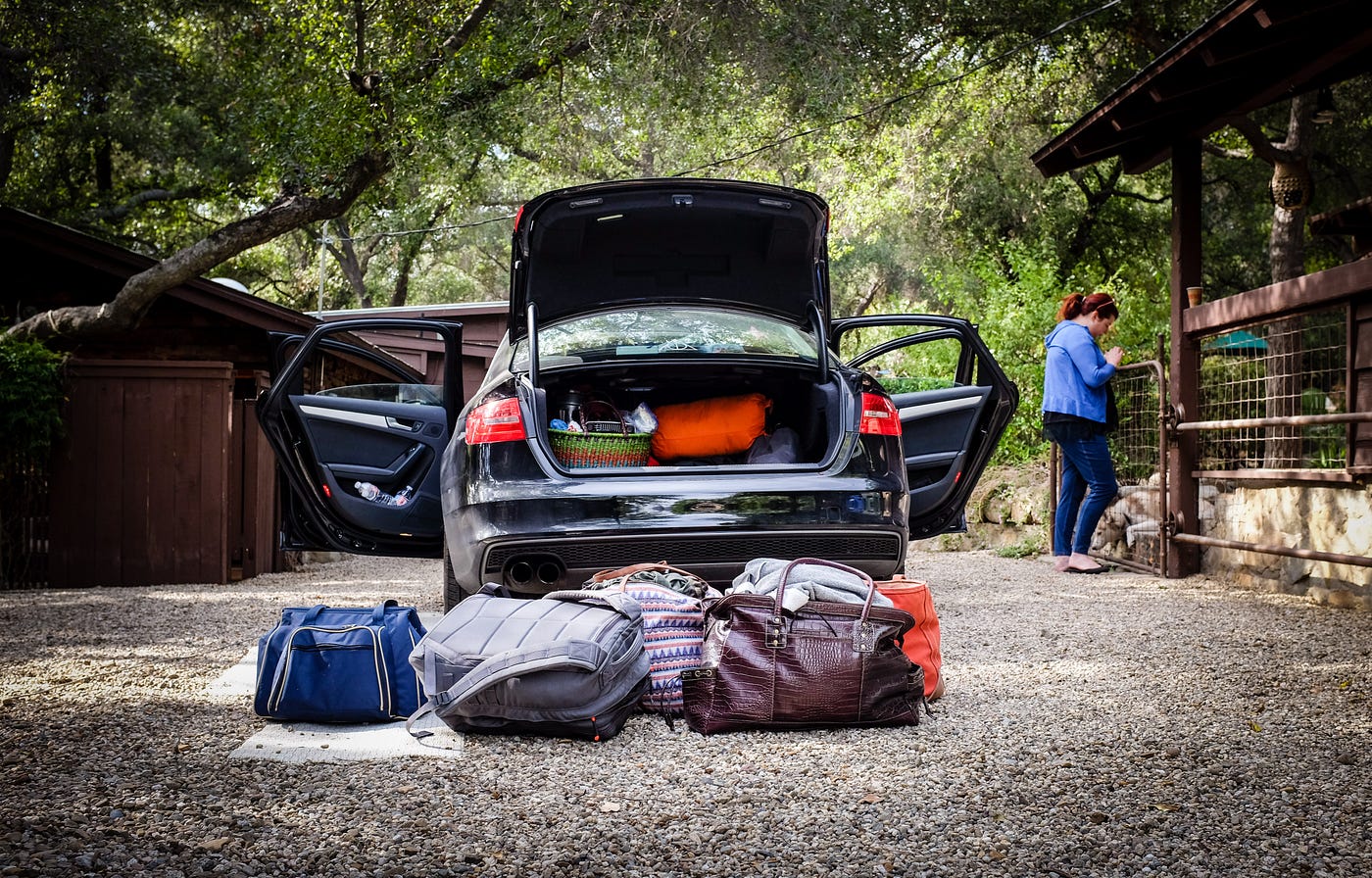
Family Packing Tips: Organizing for Every Member
- February 14, 2024
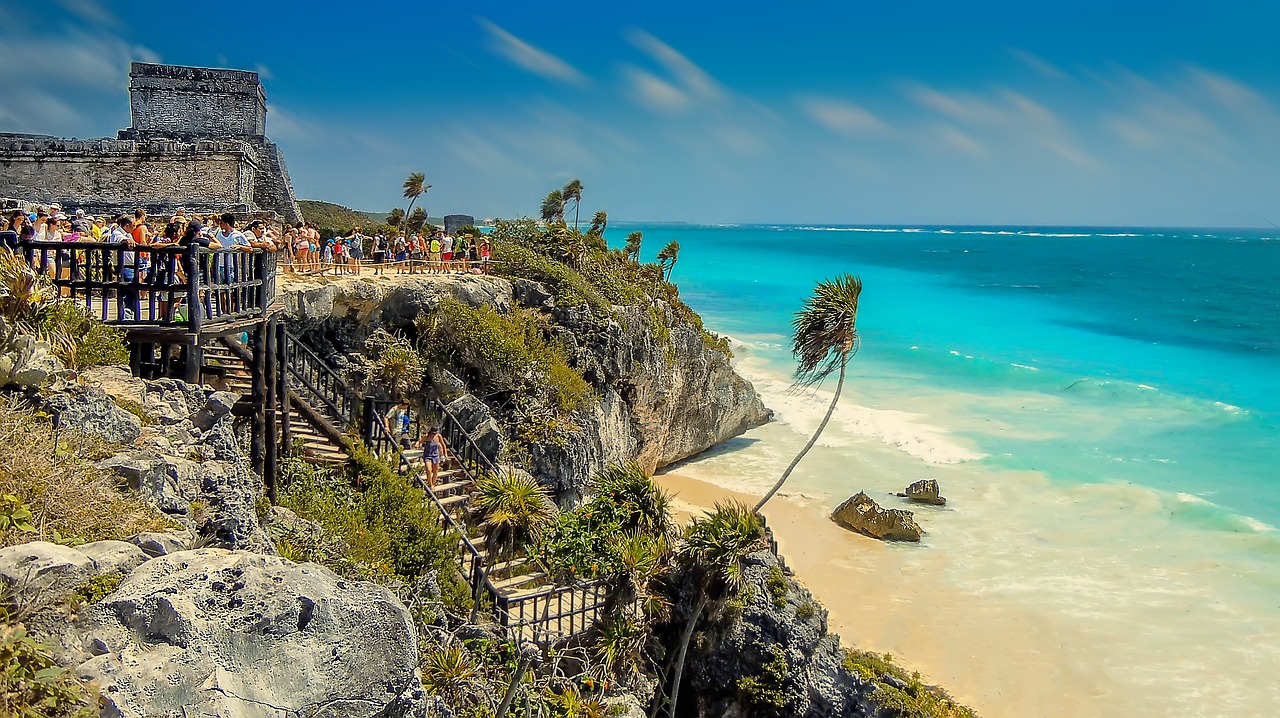
Cancun vs Playa del Carmen vs Tulum: Best Riviera Maya Destination
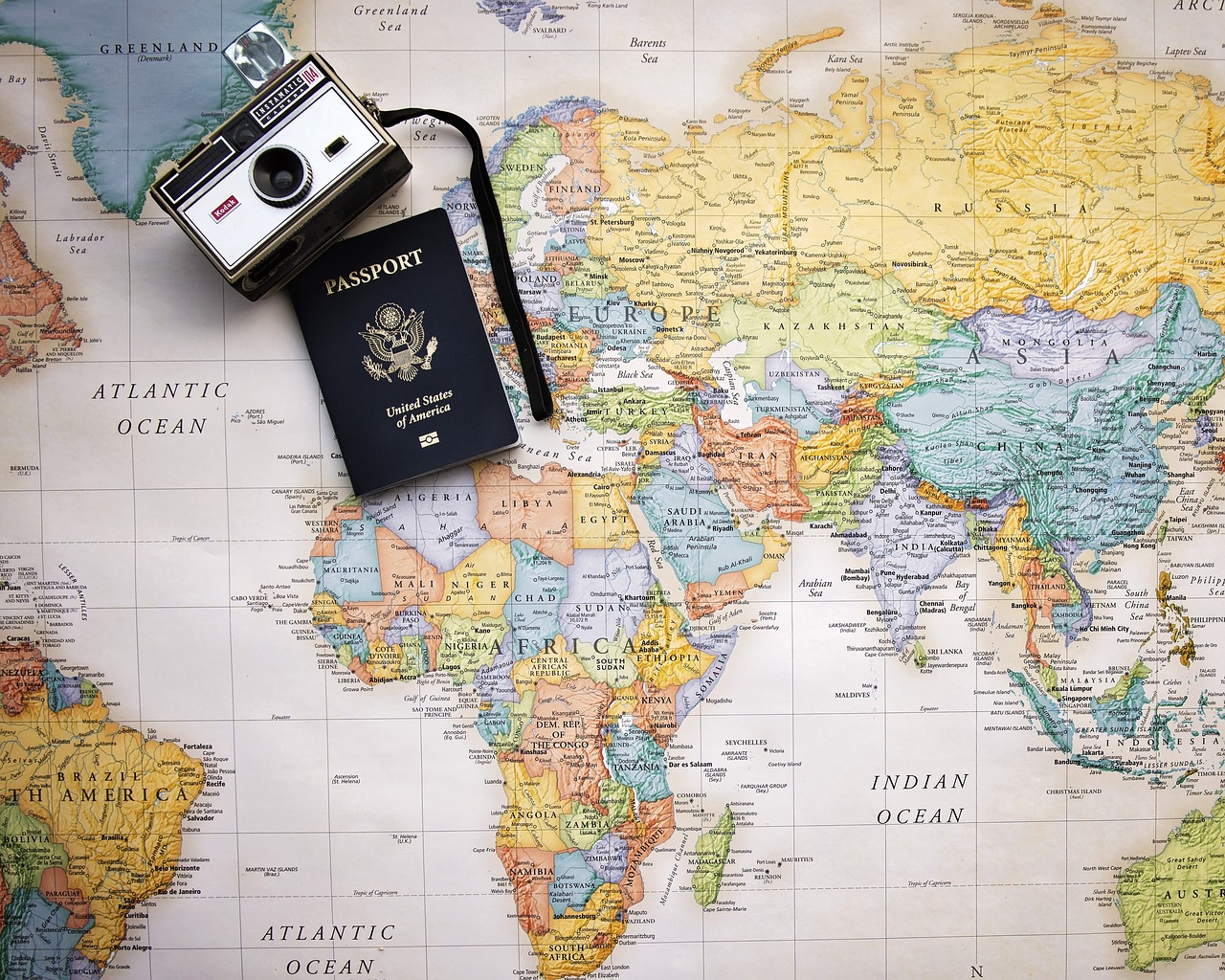
36 Pages vs. 60 Pages in Passport: Understanding Passport Types

JetBlue vs United: Airline Service Comparison
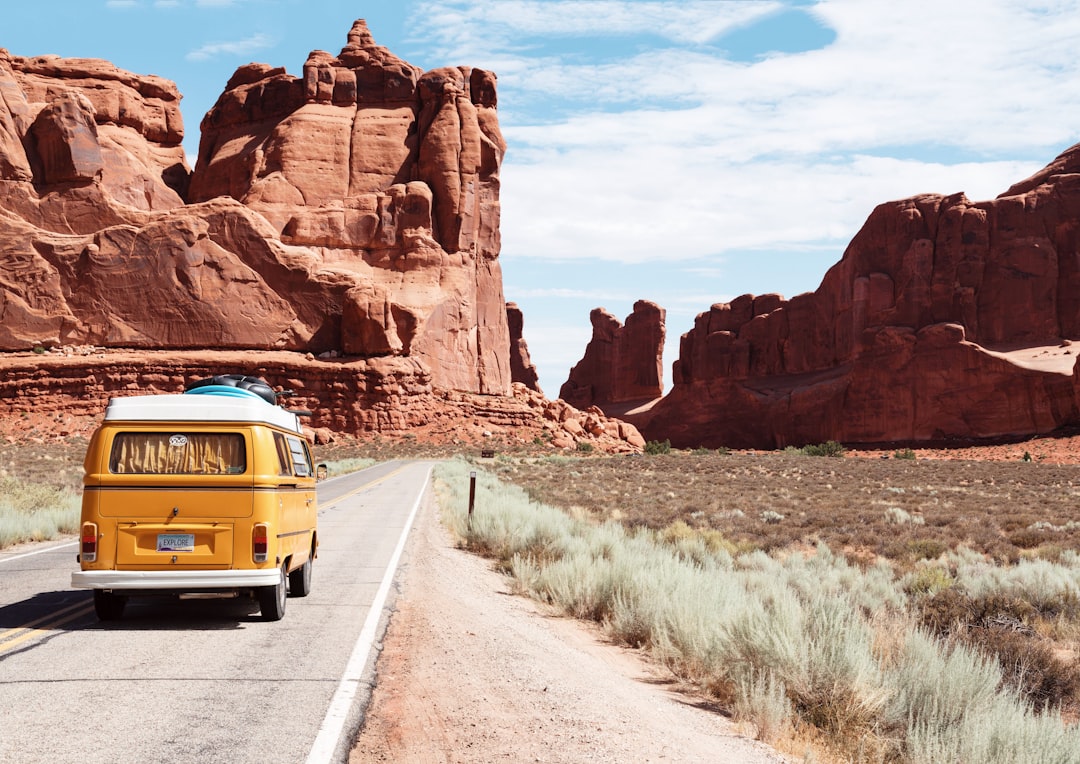
Historical Travel: Time-Traveling to the Past
- February 13, 2024
Swiss Half Fare Card vs Swiss Pass: Travel Cards

Are You A Traveller Or Tourist?
There’s an awful lot of snobbery around whether you’re a traveller or a tourist. Do you really need to label yourself?
Many people who class themselves as travellers seem to think they’re doing something bigger and better than tourists.
We’re all doing the same thing, enjoying ourselves in different parts of the world, in ways that bring us pleasure.

Disclosure : This website is owned and operated by Mature Adventures. As an Amazon Associate, I earn from qualifying purchases. Commissions are also earned from links to Booking.com, and other retailers. See Mature Adventures Disclaimer for more information.
What’s The Difference Between A Tourist And A Traveller?
A traveller or tourist is two sides of the same coin. Both are travelling, and both should be enjoying themselves and their surroundings.
According to the Oxford English Dictionary , the definitions are;
Traveller (or traveler) “A person who is travelling, or who often travels.”Tourist “A person who travels for pleasure.”
If a tourist is a person who travels for pleasure. Why do people who want to class themselves as ‘real’ travellers react to the word tourist so severely?

Travellers Travel For Longer
You might have more time to travel, but why does that qualify you or anyone else to look down their nose at a ‘tourist’ on holiday.
Would you sneer at someone at home who has less time than you to do the things they enjoy? So, why do it when you’re travelling?
Not everyone has the same advantages. If you can travel, remember how lucky you are to be doing what you do.
There are a lot of people who would love to be in ‘tourists’ shoes.
Travellers Look Like Locals
I read that tourists look like tourists, and travellers look like locals. Really?? I have yet to see a traveller or a tourist look like a local. Although, they might think they do …
Travel to the Middle East, cover up wearing a hijab and chador, but you still won’t look like a local even with just your face showing.
Travellers Mix With The Locals
There are a million and one different ways to mix with local people.
Mixing and making friends with local people is great, but it’s not just people who think they’re travellers who do that.
If you’re bringing cash into the economy, most people won’t mind whether you’re buying dinner and on your way or staying for a few days. You’re getting money into the country that may be much needed, especially now.
Whilst watching a troupe perform local dances may not be everyone’s cup of tea, the money they earn is putting food on the table. So don’t knock that experience for either party.
Especially if you’re someone who barters down to the last penny to get a ‘good deal’.

Tourists Go Sightseeing
So, you visit Agra, are you not going to see the Taj Mahal because that’s sightseeing?
Tourists and travellers both go sightseeing. Isn’t that what we are all there for?
People who visit a tourist site and then complain that it’s over-commercialised fail to see they’re part of the problem.
We all want to see the wonders of the world. So don’t complain when there are a lot of people there if you’re there too.
Travellers Get Off The Beaten Track
Some people may want to go off the beaten track and like to find less crowded places to visit that aren’t in the guidebooks.
Going ‘off-piste’, when your phone can show you the way, isn’t so big and brave anymore. Everyone can do it.
For most of the world, you’re no longer on virgin territory. So you won’t be the first or last to visit any out of the way places, whether they’re visible on Google Maps or not.
Tourists Take Tours
Everyone takes tours. They can be large or small. But there are some places where you have to go as part of a tour if you want to see what you’ve come to visit.
And suppose you’ve organised something with a local, just you and them. That’s still a tour.
One of my best friends travels a lot using overland trucks like Dragoman . The tours last anything from a couple of weeks to a couple of months.
Does that make him a tourist or a traveller?
It makes him one of the most travelled people I know. And he never feels the need to shout about his adventures or belittle other people for their travel choices.

Travel Advice
If you find yourself chatting to someone who tells you you’re not travelling properly or criticises how you travel, make your excuses and leave. The conversation won’t get any better, I promise!
Travellers Live Like Locals
Locals go to work, pay the bills, get sick, and go to the local doctor. They worry about their kids, just like anyone else.
If you do those things, you’re living like a local.
Travelling through and ticking off country after country like a worldwide bingo game won’t make anyone ‘a local’.
Travellers Are Adventurous Eaters
Apparently, tourists stick to food they know, and travellers are more adventurous.
Eating insects may look good on your Instagram feed. Some even taste good.
But does what you eat define you?
Tourists Stay In Hotels
There are many reasons we stay where we do when we travel. Of course, circumstances and money play a big part in our choice of accommodation.
Camping is great fun, but not everyone can do it. And it’s not always safe.
Hostels are for everyone, not just younger people. But don’t make the mistake of thinking staying in a hostel makes you a traveller.
Tourists Get Ripped Off
Both tourists and travellers get ripped off. You can be ripped off in your home town, whatever you call yourself.

Travellers Know How To Get More For Their Money
The more you travel, the more you realise what you do and don’t need on your trip. We all cut corners where we can to save money to travel more.
Do your laundry in the hotel sink. Does that make you a traveller?
It probably means you object to paying the price of a t-shirt to have your underwear washed by someone else. Does that make you tight, maybe?
If you use public transport when you can and taxis when necessary, or cheap. Does that make you a traveller or tourist?
Travelling without a package tour takes time, money and confidence. Unfortunately, for many reasons, not everyone has all or any of them.
Why The Tourist Or Traveller Label Is Annoying
The more you read about traveller versus tourist, the more annoying it becomes. One group of people need to name themselves to feel superior whilst looking down their noses at others.
A bus full of ‘tourists’ arriving at a UNESCO site where you want to take a perfect Instagram shot may be annoying. So instead, relax and enjoy what you and everyone else has come to see.
The ‘travellers’ Instagram shot is probably precisely the same as the ‘tourists’ photo. Or is a ‘traveller’ shot is somehow superior?
It’s travel snobbery. Just the same as ‘travellers’ who like to tell you a place was so much better, less touristy, less commercialised when they saw it ten years ago. They need to prove that they saw things before anyone else.
There’s always someone who’s travelled longer, further, and more adventurous than you. It’s not a competition; there’s no prize at the end of it.
Why miss out on all the amazing things out there, screwed up over having to be bigger and better than everyone else.
Tourist vs Traveller
The debate about tourist versus traveller rages on. But at the end of the day, they’re just two words that separate. Because whilst some ‘travellers’ are touring the world, they keep themselves apart from tourists.
They might be meeting locals, but how about chatting with a ‘tourist’ to get their equally valuable perception of their travels.
There’s no distinction between tourist and traveller; we’re all strangers making friends in new places.
We all have the right to make our own choices about how or where we travel.
No labels, no travel shaming; travel is a privilege no matter how you choose to do it.

Feel Free To Contact Me
If you have any questions regarding your travels, please don’t hesitate to contact me. I know how difficult it can be to plan a trip, and I’m always happy to help.

Latest Articles From Mature Adventures

Sofia To Bucharest By Train: A Complete Guide
The Sofia to Bucharest train journey is a popular route for travellers looking to explore both Bulgaria and Romania. Tickets are purchased from the Central Train Station in Sofia, with payments being made using cash or credit card. The daily train…

The Best Places To Stay In Windhoek, Namibia
When planning a trip to Namibia, it’s important to consider your accommodation options in Windhoek. Since you are likely to spend at least one night in Namibia’s capital city, having a clear idea of where you would like to stay…
AmeriAgency Insurance
Protecting your tomorrow, today.
Travelers vs. Travellers: The Great Spelling Debate Explained
Travelers vs. Travellers – Are you a travel enthusiast who’s always confused about how to spell the word “traveler”? Do you find yourself constantly switching between “traveler” and “traveller”? Well, you’re not alone! The great spelling debate of “traveler” versus “traveller” has been ongoing for decades, and it seems like there’s no clear winner. While both spellings are technically correct, there are some subtle differences in their usage and meaning. As a copywriter and digital marketer, I have come across this spelling conundrum numerous times, and I understand the importance of getting it right. In this article, I will explain the origins of the two spellings, their differences in usage and meaning, and provide some tips on how to choose the right spelling for your content. So, whether you’re a seasoned travel writer or just starting out, read on to unravel the mystery of the great spelling debate of “traveler” versus “traveller.” Are you looking for Travelers Insurance company? Get a Travelers Insurance quote here?
Travelers or Travellers – The History Behind the Two Spellings
The word “traveler” has been used in the English language since the 14th century. It comes from the Old French word “travaillour,” which means “one who works hard.” The word “traveller,” on the other hand, is a more recent addition to the English language and was first recorded in the 1590s. It comes from the Middle English word “travaillen,” which means “to toil or labor.”
Travelers vs. Travellers – the two spellings have coexisted in the English language for centuries, with each spelling being used interchangeably in different regions of the world. However, the spelling “traveller” is more commonly used in British English, while “traveler” is more commonly used in American English.
Regional Preferences – Where Each Spelling is More Commonly Used
As mentioned earlier, “traveler” and “traveller” are used interchangeably in many regions of the world. However, there are some regions where one spelling is more commonly used than the other.
In American English, “traveler” is the preferred spelling. This is the case in Canada as well. In Australia and New Zealand, “traveller” is the preferred spelling. In the United Kingdom and other parts of the Commonwealth, “traveller” is the more commonly used spelling.
It’s worth noting that even within these regions, there can be variations in spelling depending on the context. For example, in British English, “traveler” is used when referring to modes of transportation, such as “train traveler” or “air traveler.” Click here for the dictionary.
American English vs. British English – How They Differ in Spelling
The differences between American and British English spellings are well-documented, and the spelling of “travelers” vs. “travellers” is no exception. As mentioned earlier, “traveler” is the preferred spelling in American English, while “traveller” is the preferred spelling in British English.
In addition to travelers vs. travellers, there are many other words that are spelled differently in American and British English. For example, “color” is spelled “colour” in British English, and “center” is spelled “centre.” These differences in spelling can sometimes cause confusion, especially when writing for an international audience.
The Impact of Technology on Spelling
The rise of technology and the internet has had a significant impact on the way we spell words. With the advent of spell-checkers and autocorrect, it’s easier than ever to ensure that your spelling is correct.
However, these tools are not foolproof and can sometimes lead to errors. For example, if you’re using a spell-checker that is set to American English, it may automatically change “traveller” to “traveler” without you even realizing it.
It’s always important to double-check your spelling, especially when writing for an international audience. You don’t want to inadvertently use the wrong spelling and alienate your readers.
Travelers or Travellers – Which Spelling Should You Use?
So, which spelling should you use? The answer depends on your audience. If you’re writing for an American audience, “traveler” is the preferred spelling. If you’re writing for a British audience, “traveller” is the preferred spelling.
If you’re writing for an international audience, it’s best to choose one spelling and stick with it throughout your content. This will help to avoid confusion and ensure that your content is consistent.
How to Handle the Spelling When Writing for an International Audience
When writing for an international audience, it’s essential to be mindful of the spelling differences between American and British English. Here are some tips to help you handle the spelling when writing for an international audience:
— Select one spelling and stick with it throughout your content.
— If you’re unsure which spelling to use, do some research on your target audience to determine which spelling is more commonly used.
— If you’re using a spell-checker, make sure it’s set to the correct language.
— Double-check your spelling before publishing your content.
Other Spelling Debates in English Language
The spelling of “traveler” versus “traveller” is just one example of the many spelling debates in the English language. Here are some other examples:
— “Program” versus “programme”
— “Theater” versus “theatre”
— “Color” versus “colour”
— “Center” versus “centre”
These spelling differences can be confusing, but it’s important to remember that both spellings are technically correct. The key is to choose one spelling and stick with it throughout your content.
Travelers or Travellers Fun Facts and Trivia
— The word “traveler” is the preferred spelling in the United States, but it’s also used in British English when referring to modes of transportation, such as “train traveler” or “air traveler.”
— The word “traveller” is the preferred spelling in the United Kingdom and other parts of the Commonwealth, but it’s also used in American English, especially in formal writing.
— The spelling of “traveler” versus “traveller” is just one example of the many spelling differences between American and British English.
— The rise of technology and the internet has made it easier than ever to ensure that your spelling is correct, but it’s significant to double-check your spelling, especially when writing for an international audience.
Conclusion – The Verdict on Which Spelling to Use
So, which spelling should you use – “traveler” or “traveller”? The answer depends on your audience. If you’re writing for an American audience, “traveler” is the preferred spelling. If you’re writing for a British audience, “traveller” is the preferred spelling.
Ultimately, both spellings are technically correct, and it’s up to you to select which one to use. The key is to be consistent and to double-check your spelling before publishing your content. By following these tips, you can navigate the great spelling debate of “traveler” versus “traveller” with confidence and ease. Click here for a Travelers Insurance review.
Difference Between | Descriptive Analysis and Comparisons
Search form, difference between traveller and tourist.
Key Difference: According to expert travellers, a traveller is a type of person that likes to live in the now, he likes to experience life as it passes by and has a whole different outlook on life. On the other hand, a tourist is usually short on time. He has a specific amount of time in which he has to plan his whole trip.
However, in today’s world the words have come to become significantly different from each other. Each word has garnered a significance that is now attached with the word. A tourist may be called a traveller without any problems, but a traveller will be gravely insulted if they were called a tourist.
A tourist and traveller differ in many aspects including likes, dislikes, travelling habits, places they like to visit, the way their experience a place, the people they like to talk to, etc.
According to expert travellers, a traveller is a type of person that likes to live in the now, he likes to experience life as it passes by and has a whole different outlook on life. They prefer to travel light, and live each place that they visit. They do not like to visit the tourist places, but rather to take the beaten path and find small places with great cultural significance. They prefer to travel in small groups of usually one or two people and prefer to walk or take the local transport.
They can usually be seen carrying a translation booklet in order to be able to talk in the local language. They prefer to shop on the street and will bargain with the shopkeepers, just like the locals. They love to try the local cuisine by eating on the street and love to listen and share stories with the locals about their culture. The travellers usually take their time to get to know a place and do not rust. They can sometimes spend months in a country, without having any inclination to leave. The traveller really gets to know and understand the root of the country they are in.
Tourists are usually people that prefer to interact very little with the locals and do not have the time to sit and converse with them. They do not listen to their stories and prefer to share very little about themselves. They are usually seen taking photos in almost every tourist spot in random poses. They also prefer to speak in English and do not like to converse in the local language. Tourists usually prefer to reside in hotels that have pools and spas, which allow them very little interaction with the locals and their housing manners.
Tourists and travellers are very different when it comes to interacting with a country. However, each are best suited to a particular type of person. A tourist has very limited time to incorporate all the things of a country into a small time consumed package and hence he must cover all the tourist places. On the other hand, a traveller has ample amount of time and money in order to admire the city at their own leisure. Being a traveller or a tourist can sometimes also depend on the country and its people.
Comparison between Traveller and Tourist:
Image Courtesy: josefinemk.wordpress.com, clipartpanda.com
Add new comment
Copyright © 2024, Difference Between | Descriptive Analysis and Comparisons
Grammar Palette

Traveler or Traveller: Which Spelling is Right?
People often argue about the correct way to spell words, and one common debate is between ‘traveler’ and ‘traveller.’ Both spellings are okay, but which one is more right? Let’s look at the differences and when to use each.
Table of Contents
American Way: ‘Traveler’
In America, we usually write ‘traveler.’ It’s simpler with just one ‘l.’ This way of spelling came about in the 1800s to make writing easier. So, if you’re in the United States, ‘traveler’ is the way to go.
British Style: ‘Traveller’
Across the pond in the United Kingdom, they prefer ‘traveller’ with two ‘l’s. The British like to keep things traditional, holding onto how words were spelled in the past.
Where and How to Use
The choice between ‘traveler’ and ‘traveller’ isn’t only about where you are. It also depends on what you’re reading. American books and websites use ‘traveler,’ while British ones use ‘traveller.’ Both are right in their own way.
You will like: Center vs Centre: Decoding the Spelling Difference
Language Changings
Words change over time, and that’s cool. ‘Traveler’ and ‘Traveller’ show how English can be different but still right. Instead of thinking of them as mistakes, see them as part of the language’s rich variety.
Deciding between ‘traveler’ and ‘traveller’ is mostly about where you are and what you’re reading. Neither way is wrong – it’s about keeping things consistent. Whether you like the American ‘traveler’ or the British ‘traveller,’ just stick to one. Language is all about talking to each other, and having different spellings just makes it more interesting.
Related Posts

Connector or Connecter: What’s the Correct Spelling?

Is it Pallette or Palette? Choosing the Correct Spelling!

Totalling or Totaling: Which Spelling to Use?

Flounder vs Founder: Which One to Use?

Axle or Axel: What’s the Difference?

Set or Sit: When Should each be Used?
Leave a comment cancel reply.
Your email address will not be published. Required fields are marked *
Save my name, email, and website in this browser for the next time I comment.

Enhance your language skills with Grammar Palette! Join our newsletter for easy grammar tips, joyful learning, and improved communication. Subscribe now!
- United Kingdom
- Find Out Whether You Are...
Are You a Tourist or a Traveller?

You may have heard that tourism is out, travelling is in . More than a fashion, it’s a distinction often made by travellers looking to set themselves apart from tourists. But are things really so black and white? And how realistic is being a traveller for most of us anyway?
The difference between tourists and travellers.
If you just look at the stereotypes for tourists and travellers, you will only focus on the differences. Among them are where they stay, what they eat, see and do, and how far they’re willing to go in search of adventure. The stereotypical tourist, for example, stays in nice hotels, takes package deals and eats often in the hotel or TripAdvisor-approved restaurants. By contrast, the traveller seeks more authentic and immersive local experiences, takes the road less travelled, eats where the locals do and prioritises adventure over comfort. You may be one, or you may be both.

It’s a question of purpose
Hiding among many self-proclaimed travellers, however, is a tourist. Tourists aren’t always on the tourist buses and often camp, wander and stargaze too. These aren’t exclusive experiences that one can have and not the other. True, their purpose is primarily to holiday, but how active and in what style all depends on the person.

Travelling is a profession, tourism is an industry
Travelling in its strictest sense is hard work! It’s getting up at the crack of dawn to catch an overflowing bus or train to the next town. It’s bugs in your room, taking risks, getting lost, pleasant and unpleasant encounters… It’s feeling the fear and doing it anyway!
Many non-professional or unseasoned travellers, not yet familiar with the highs and lows of travel, may be expecting too much from their experiences . Travelling is increasingly romanticised, with the reality sometimes proving very different.

If it’s a holiday you’re after, you’re probably, mostly, a tourist
Tourist vs. Traveller is a way to identify, but often says more about the age or life stage and budget (both money and time) of the person than their real preference. For many people looking at how to spend the annual vacation allowance, a pampering spa-resort with the occasional fine dining experience, is usually more suited for a break from our daily lives. Air-conditioned private tours arranged by the hotel, where you don’t need to plan or do anything other than show up, will certainly leave you more relaxed than many alternatives. Both tourists and travellers want to turn memories into photos , to have been, to have seen. But most tourists don’t want to feel the fear!
Since you are here, we would like to share our vision for the future of travel - and the direction Culture Trip is moving in.
Culture Trip launched in 2011 with a simple yet passionate mission: to inspire people to go beyond their boundaries and experience what makes a place, its people and its culture special and meaningful — and this is still in our DNA today. We are proud that, for more than a decade, millions like you have trusted our award-winning recommendations by people who deeply understand what makes certain places and communities so special.
Increasingly we believe the world needs more meaningful, real-life connections between curious travellers keen to explore the world in a more responsible way. That is why we have intensively curated a collection of premium small-group trips as an invitation to meet and connect with new, like-minded people for once-in-a-lifetime experiences in three categories: Culture Trips, Rail Trips and Private Trips. Our Trips are suitable for both solo travelers, couples and friends who want to explore the world together.
Culture Trips are deeply immersive 5 to 16 days itineraries, that combine authentic local experiences, exciting activities and 4-5* accommodation to look forward to at the end of each day. Our Rail Trips are our most planet-friendly itineraries that invite you to take the scenic route, relax whilst getting under the skin of a destination. Our Private Trips are fully tailored itineraries, curated by our Travel Experts specifically for you, your friends or your family.
We know that many of you worry about the environmental impact of travel and are looking for ways of expanding horizons in ways that do minimal harm - and may even bring benefits. We are committed to go as far as possible in curating our trips with care for the planet. That is why all of our trips are flightless in destination, fully carbon offset - and we have ambitious plans to be net zero in the very near future.

Places to Stay
Five london hotels to familiarise yourself with.

Pillow Talk: Between the Sheets of the Beaumont, Mayfair

Bars & Cafes
The best bars in london for stylish nights out.

Food & Drink
Top european cities for a plant-based foodie fix.

The Best International Afternoon Teas in London

See & Do
The 41 best things to do in london.

A West End Performer’s Guide to London With Sam Harrison

The Coolest Hotels in London

Guides & Tips
A high-rollers guide to a london staycation.

How the Metaverse can help you plan your next trip

Must-Visit Attractions in London
Culture trip spring sale, save up to $1,100 on our unique small-group trips limited spots..

- Post ID: 1339552
- Sponsored? No
- View Payload
Is it ‘traveling’ or ‘travelling’?
What to Know When it comes to spelling the forms of the verb travel , traveled and traveling are more common in the U.S., and travelled and travelling are dominant everywhere else.
Spelling is typically clear-cut in modern English: forty unfailingly betrays four ; the sweet treat after dinner is spelled dessert , not desert .
But some words have two forms that appear often enough in edited text to make it clear that something else is going on. And so it is with forms of the verb travel : traveled and travelled , and traveling and travelling .

It might have a different spelling wherever you're going.
One or Two L 's?
If you look at where the single l forms originate and where the double l forms originate a pattern emerges: in the United States, traveled and traveling predominate, and everywhere else travelled and travelling are preferred.
The reason mostly comes down to one man we at Merriam-Webster hold especially dear: Noah Webster. Our lexicographical father (brothers George and Charles Merriam bought the rights to Noah Webster’s 1841 dictionary after Webster died) was a great believer in spelling reform and wanted English spelling to make more sense—and if the English of his homeland had more logic to it than its British parent, so much the better. He decided that travel needed only one l in its past and present participle forms.
Webster’s logic is the reason behind the spelling of canceled and cancelled as well: in the U.S., they have just one l , but elsewhere two l ’s are the norm.
American English Words that Use 2 L 's
Webster didn’t think all double l ’s needed to be reduced to one, however: in cases in which the accent, or emphasis, is on the syllable with the l , two l ’s are preserved: expelled and expelling ; controlled and controlling ; patrolled and patrolling .
Word of the Day
Tendentious.
See Definitions and Examples »
Get Word of the Day daily email!
Games & Quizzes

Commonly Confused
'canceled' or 'cancelled', is it 'home in' or 'hone in', the difference between 'race' and 'ethnicity', homophones, homographs, and homonyms, on 'biweekly' and 'bimonthly', grammar & usage, primary and caucus: what is the difference, words commonly mispronounced, merriam-webster’s great big list of words you love to hate, more commonly misspelled words, commonly misspelled words, 12 words for signs of spring, 12 more bird names that sound like insults (and sometimes are), 13 unusually long english words, the words of the week - apr. 19, 10 words from taylor swift songs (merriam's version).
- Klub putnika
Are you a Traveller or a Tourist

"Tours for travelers, not tourists" is the slogan of a tour company whose brochure landed on my desk a while back. This stuck me as a pretty nifty little Zen koan. Tours that aren't for tourists, I gather, are roughly equivalent to bicycles that aren't for bicyclists and flutes that aren't for flutists.
I hate to shatter anyone's cherished prejudice, but here's the definition of "tourist" in Webster's New World Dictionary: "a person who makes a tour, esp. for pleasure." Which means that if you go on a tour -- even one operated by this particular company -- you are, by definition, a tourist.
Not that there's anything wrong with that.
But among the status-conscious, the word "tourist" has come to mean "anyone who travels in a style I consider inferior to the way I like to think I do it."
You can't open a glossy travel magazine or click on a Web page these days without tripping over one of those tiresome aphorisms: A tourist travels to get away from home; a traveler feels at home when he travels. A traveler sees what he sees; the tourist sees what he has come to see. A traveler makes his own way; a tourist has another make his way for him. A tourist takes his prejudices with him; a traveler is transformed by his journeys. A tourist comes home with photos; a traveler comes home with memories.
In other words: A traveler like me is cool; a tourist like you is a dork.
The travel media loves to promote this bogus dichotomy. "Be a traveler, not a tourist," is the slogan on ads for "Without Reservations," a new show on the Travel Channel, as writer Rolf Potts pointed out recently on his blog. The very same tagline is on the cover of a guidebook series published by Open Road and was, for a while, the name of a column in National Geographic Traveler magazine.
If there really is that big a gap between travelers and tourists, I truly doubt you're going to bridge it by choosing one mass-market guidebook over another or watching a half-hour show wedged between Texas Hold 'Em tournaments on the Travel Channel.
The problem, I think, is that it's gotten so much harder for status-conscious travelers to feel superior. A generation or two ago, merely stepping onto an airplane or a train or a ship and going somewhere -- anywhere -- was all it took to give you the backyard-barbecue standing of a sophisticated man of the world. But these days everyone travels -- on the trail to Everest I once ran into a vacationing San Francisco stripper -- so what can be done to elevate yourself over your fellow travelers? Deride them as "tourists."
The thing is, as Potts noted, we're all tourists (in the "unsophisticated traveler" sense of the world). We all spend a brief time in a foreign place and then leave. Some might work harder than others to get off the main tourism grid, and some put more effort into chatting up the locals. Riding on the chicken bus or sleeping with the pigs on the floor of a village headman's house are memorable things to do, but if you think this gives you any significant insight into another culture you're kidding yourself.
Travel for me is humbling, and the more I do it, the more I realize it's impossible to come home after a few weeks with any more than a surface-skimming understanding of other people, no matter how many chicken buses I ride. I try to make a few friends and absorb as much as I can, but I've come to appreciate that the world is an impossibly vast and complicated place.
Sometimes when I travel abroad I do feel at home, and sometimes I feel (as "tourists" are accused of feeling) like a stranger in an extraordinarily strange land. I like that feeling much better. Sometimes I make my own way, and sometimes I'm happy to have my way made for me. Sometimes I'm transformed by my journeys, and sometimes, to be honest, I'm not. Let the traveler-not-a-tourist without sin cast the first stone (or flaming e-mail).
As far as I'm concerned, whatever anyone wants to do on his vacation -- walk barefoot across the Hindu Kush or sip Bahama Mama cocktails on the Lido deck -- is his own business, as long as he adheres to a couple of basic rules: Treat the people and places you visit with respect. Act in a way that reflects well on your fellow Americans. That's pretty much it.
Last year in Venice, I found myself dining next to a rather voluble family from Dallas. They spent most of their meal speculating about the upcoming high school football season, and at one point the father raised his glass and declared that they'd traveled the length and width of Italy and never once had a meal that couldn't be bettered in Dallas.
Now Venice is hardly the culinary capital of Italy, but this guy almost made me choke on my pasta e fagioli. Still, he was entitled to his opinion. I fault him only for broadcasting it to the entire restaurant. Oh, and I also fault his wife for standing up and yelling at the waiter who still hadn't brought her glass of wine after five whole minutes. I just prayed they wouldn't recognize me as a fellow American and try to strike up a conversation.
Were these folks "tourists" and was I a "traveler"? Well, we'd all found our way to the very same restaurant and were eating the very same food (which frankly wasn't very good, although I'd still rank it ahead of a T.G.I. Friday's). I suppose I felt a little superior to these people, but what's the point?
Why don't we focus on our own experiences and spend a little less time judging our fellow tourists/travelers? If you go on a tour that's advertised for travelers, not tourists, and you want to fancy yourself more sophisticated than someone who goes on a tour that's merely for tourists, go right ahead. But please keep it to yourself.
Text originally published on www.sfgate.com .

We recently published our first English book: Bantustan, Atlas of an African Journey . It is an illustrated travelogue with a collection of hand-drawn maps, available on Amazon. Find out more at www.bantustanbook.com .
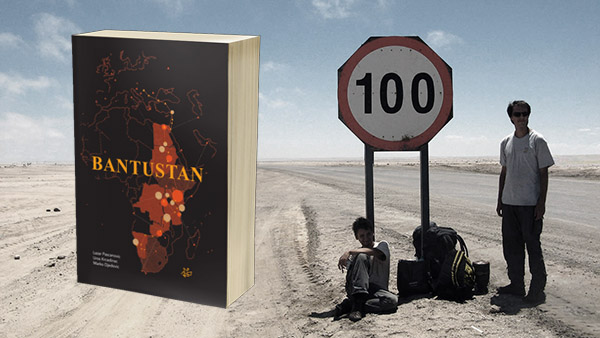
If you like what we do, if you'd like us to keep doing it, please support The Travel Club on Patreon . Even a smallest donation goes a long way. More than anything, it tells us that we are not alone, that our hard work means something to somebody out there.
- Hidden Gems
- Popular Classics
- Travel Tools
- Photography
- Vintage Pieces
- Digital Prints
10 Easy Ways to Be Traveller And Not A Tourist
- March 18, 2024
Anthony Bourdain once stated, “Travel isn’t always pretty . It isn’t always comfortable .” As travellers, we wholeheartedly agree with this sentiment and wouldn’t change a thing about it. To travel, really travel, and be a traveler is to not be a tourist that hops around from one hot spot to another. Contrary to popular belief, collecting photos of yourself “touching” the Eiffel Tower and “holding up” the Leaning Tower of Pisa is not travel.
To be a traveler and not a tourist isn’t always natural if you are not experienced. As with all great things, it takes some time but the important thing is to take the first step. In this guide, we’ve compiled the essential tips and ways for anyone to be a traveler and not just another tourist.
The Difference Between Tourist vs. Traveller
Showing respect results in better treatment, be less sought after by scammers, gain authentic experiences, cheaper travel, restaurants, things to do and see, tourist clothing, tourist behaviour, 1. seek out free or cheap things to do, 2. use public transportation or walk, 3. ditch the itinerary, 4. book accommodation outside of the city centre, 5. join an unplanned activity, 6. rely on recommendations from a local, 7. be respectful and be informed, 8. take an interest in food and language, 9. keep your wits about you, 10. lose your expectations, bonus: let your kids break the ice, final thoughts on choosing to be a traveller and not a tourist, travel resources for travellers.
We will gladly admit that the term “tourist” is not one which we ever want to associate with. If you’re a frequent traveller, you already know why this is, but if you’re not, it’s completely understandable to perhaps not even know there is a difference between the two terms. Some will have their own definitions, but to us, the biggest contrast between a tourist and a traveller is an appreciation of authentic experiences, understanding real culture, and willingness to get off the beaten path .
On the other hand, tourists are more inclined to visit a destination just for the top sights , eat at an Instagram famous restaurant , stay in a fancy hotel , and snap some iconic photos to showcase back home.
Before anyone thinks that we’re sitting on a high horse, we must assure our readers that at some point during every experienced traveler’s early days, we were all once tourists ourselves . To improve at anything, and in our case, become better travellers, we once had to be bad tourists. At times, we learned the hard way but with those experiences, we’ve been able to transform into travellers.

Why Is It Better to Be a Traveller and Not a Tourist?
Let’s back up and highlight why on earth you’d even want to be (or at least look like) a traveler rather than a tourist. These tips will benefit many major aspects of your overall trip and allow you to have better experiences , regardless of where you are in the world.
The logic with this one is quite simple. Show respect and it will be reciprocated . Unfortunately, there are many destinations where tourism has gotten out of hand. For the residents that actually live in the place you traveled across the world to visit, certain things can become unbearable because of how some tourists act.
Gaining respect instead of contributing to the bad reputation of careless tourists should always be the goal. By doing this, it only makes sense that you will be treated better and more genuinely in return. These don’t have to be grand gestures : ordering coffee in the local language or ensuring you are respectfully dressed in a church are two easy examples.
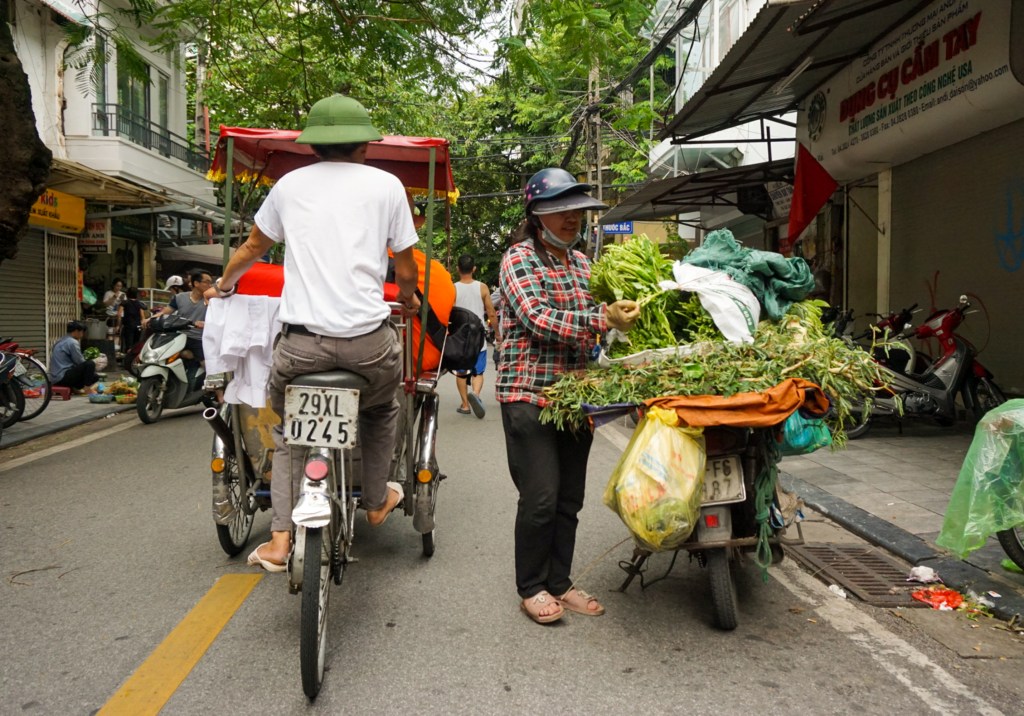
Some of the most popular destinations in the world are unfortunately the places where you’ll most likely to get scammed. By looking, speaking and acting less like a typical tourist , you are more likely to get ignored by scammers and potential petty theft. If you seem like an easy target, scammers are more inclined to seek you out and bother you over someone who is privy to their tricks.
Pickpocketing in crowded areas will always be an issue, whether you’re a traveler or tourist. However, there are really easy ways to not give thieves a reason to target you, such as unzipped bags, flashy jewelry, and expensive tech gear out in the open. Always ask yourself “How can I blend in?”
There’s something unsettling about sharing the exact same stories with someone who has visited the place you just got back from. Travel to popular destinations can be repetitive but if you’re mindful, doesn’t have to be.
Choosing to be a traveler and not a tourist will naturally result in gaining more authentic experiences during your travels. Opting for locations off the beaten path , unique activities and homemade meals over the “top 10 must-see” attractions will open the door to experiencing a destination unlike every other tourist. If you want to be different while traveling , you must be willing to throw out the guidebook from time to time.
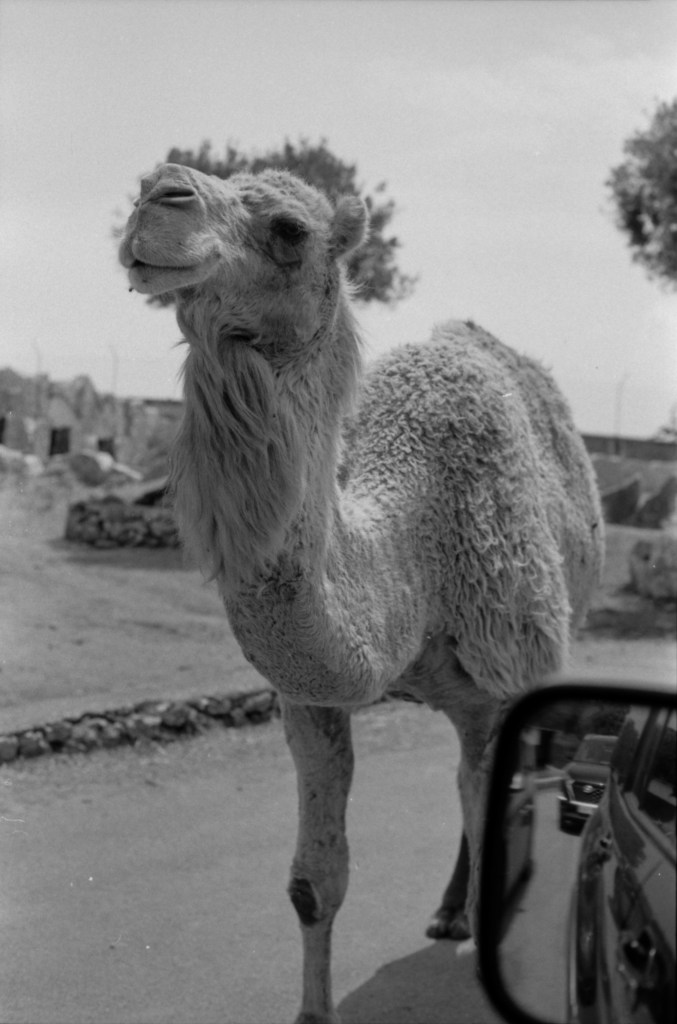
Scoring better deals and keeping the overall costs of your trip are among the best results of avoiding tourist traps. By spending your money where most tourists don’t , it’s probable to spend way less. This applies to nearly everything from choosing where you eat, the location of your accommodation and even attractions or activities.
The most popular things to see and do in any destination are likely to be the most expensive. Instead of buying a slice of pizza on the main avenue of a city, head a few blocks over and enjoy even better food for a fraction of the cost.

What Is a Tourist Trap and How to Avoid Them
A tourist trap is an establishment with one primary intent: to overcharge tourists who don’t know any better . Tourist traps can show up in all shapes and forms, ranging from restaurants, taxi rides, hotels, and attractions.
🔑 More often than not, there is one golden rule to follow: anything written in English in a non-English speaking country = tourist trap.
If you are not a frequent traveler or it’s your first time abroad, you may not be aware that tourist traps exist or how to recognize them. Use these essential tips as a start!
Tourist traps are most commonly found and easiest to spot out in popular destinations . For example, in Prague , every single restaurant, bar or cafe you find in the Old Town Square is a tourist trap. I know, this is a huge let down but as tourism booms, this is the sad truth. The reason for this is because it’s a highly frequented area of Prague, is beautiful and therefore, an easy way for business owners to charge more for the experience .
Restaurants are the biggest tourist traps for beginner travellers. Our biggest tip is to avoid eating at places where the menu is in multiple languages and has photos of the dishes . A massive menu with food items that aren’t even relevant to where you are is also a huge red flag. These are indications that the food will be average in quality, inauthentic, and overpriced.
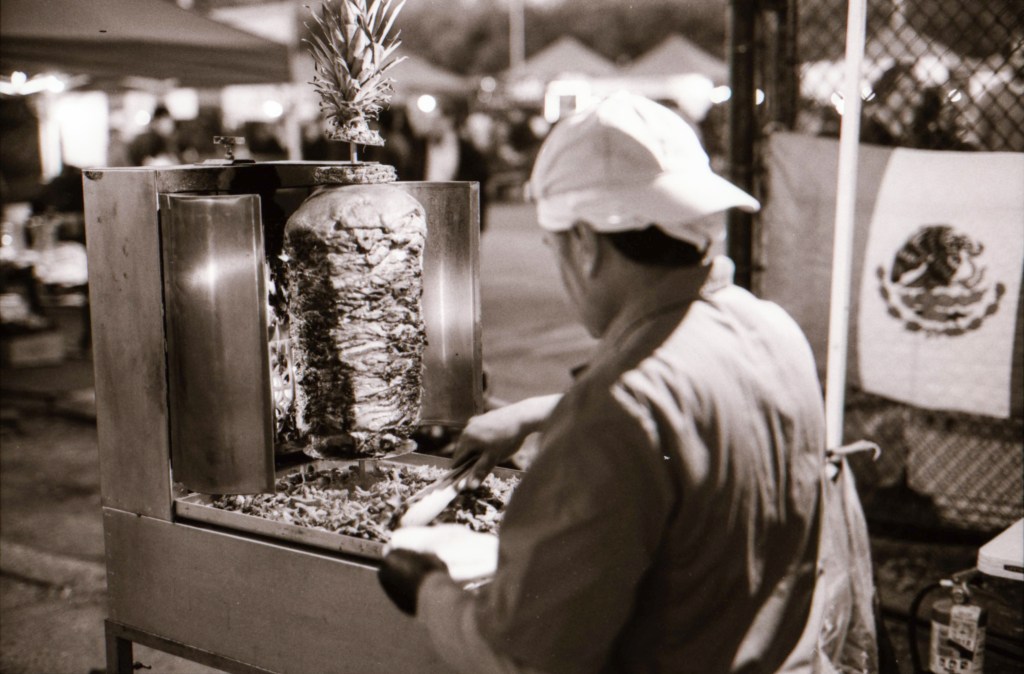
Souvenir shops are a major department in the world of tourist traps. Think and look twice before you buy something that you believe is handmade or local. You could very well be buying a trinket that’s not even made in the country and mass-produced for the hundreds of souvenir shops around town.
🎨 One of our favorite souvenirs to purchase while traveling is ceramics. To ensure we’re not buying something that’s mass-produced or artificial, we only shop at ceramic studios where we can see the items being made with our own eyes.

Unless you are particularly interested in kitschy attractions, it’s OK to be suspicious of inauthentic experiences that don’t seem to match the place you’re visiting. For example, you’ve likely seen “fish pedicures” in salons of major European destinations. We hate to break it to you, but no, this isn’t how locals are spending their time in Santorini or Vienna.
Outdoor landmarks or natural wonders that charge a ridiculous amount of money are also likely to never be worth it. As a good rule of thumb, avoid paying a large entrance fee for any site that’s outside . If there is an admission for an outdoor attraction, it is very likely that unauthorized locals decided to start charging money for something they have no right to.
Lastly, never provide payment upfront for an agreed-upon tour. If you come across a situation where you’re being sold an activity for a future date and are requested to pay first, this is reason enough to be cautious.
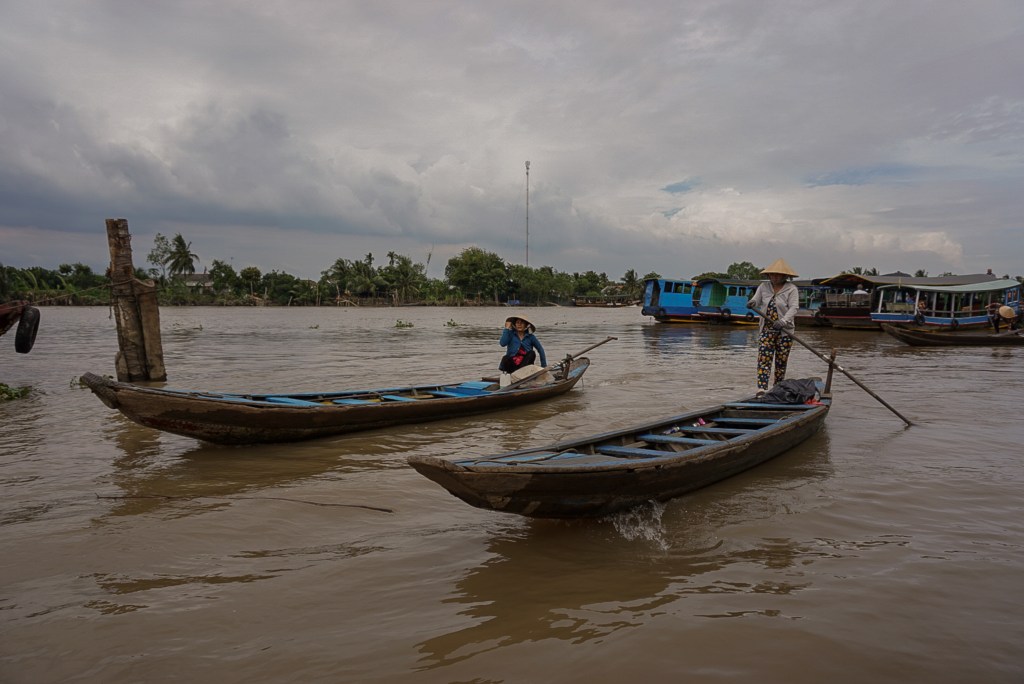
How to Not Look like a Tourist
To keep your appearance from screaming “I’m a tourist!” will depend on where you are traveling. Different parts of the world have various trends, customs, and normalcies, so it may be impossible to always hit the mark exactly. However, there are a few basic essentials to be aware of when doing your best to look like a traveler and not a tourist, regardless of the destination.
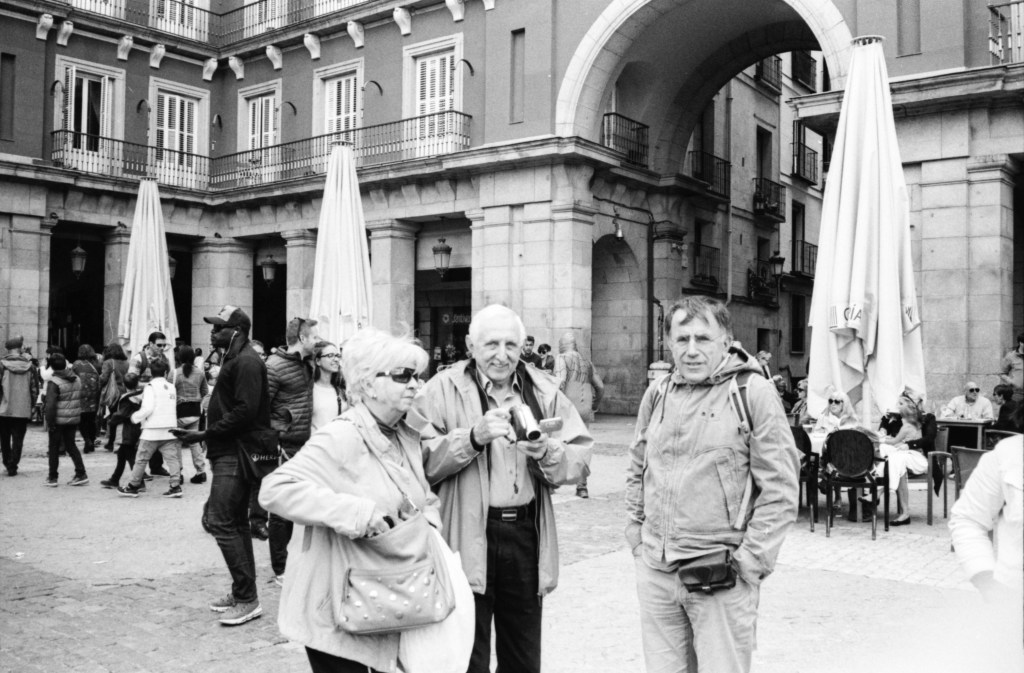
One of the most common scenarios where people don’t want to look like a tourist is in Europe. To not look like a tourist while visiting Europe , there’s a couple of rules to stick to. Although fashion is constantly changing, we would still recommend to avoid wearing a backpack, activewear or hiking gear while in a city, wide-brim hat with string (classic tourist hat), plaid shorts, and walking sandals . Additionally, nothing gives away that you’re a North American tourist than by hauling around enormous and multiple rolling suitcases .
If you are visiting a religious country or landmark, it’s critical to dress appropriately by covering up. For women, this can most easily be done by carrying around a light shawl or even a compact skirt you can throw into your purse. Always research what is appropriate to wear if you are not sure, particularly as a woman.
🇲🇦 While visiting Tangier for the first time, I wasn’t entirely sure what would be accepted as a dress code for women . To be safe rather than sorry, I avoided tight clothing at all costs and showed as little skin as possible.
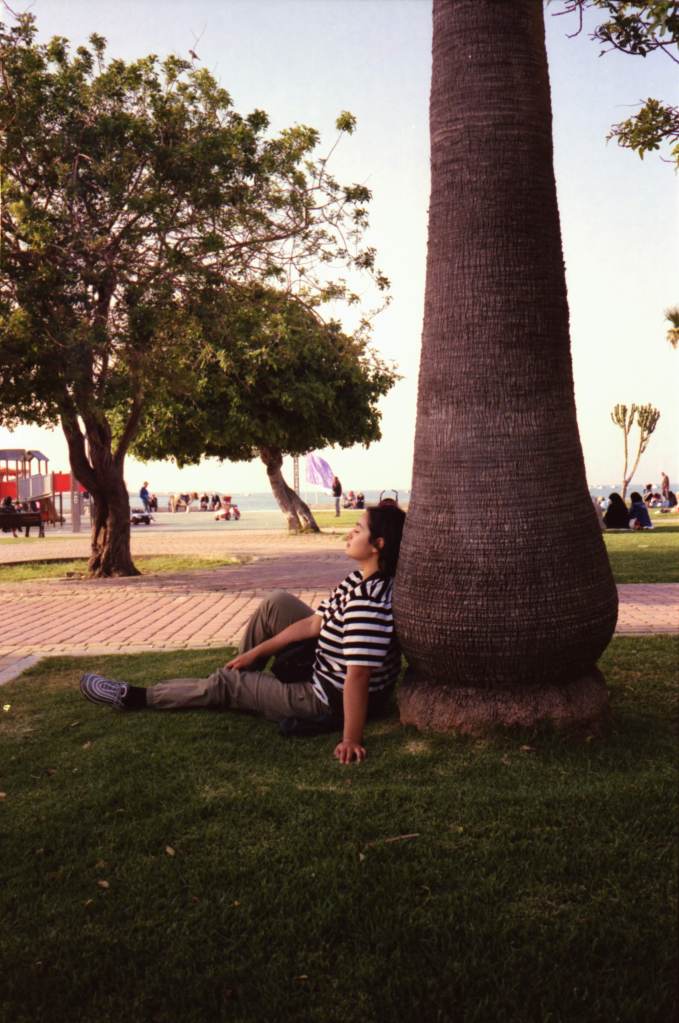
Aside from controlling what you wear, there are other actions to steer clear of when you don’t want to look like a tourist. First, constantly checking your phone for directions is a clear sign that you are not from there. By doing this, you may also cause foot traffic by standing in the way or walking too slowly while figuring out where you are going. Always pull to the side to sort out directions or try to study the route before you leave so you have a better idea of where you’re headed. As an overall theme, tourists are less likely to look confident.
Unfortunately, this stereotype often lives up to its reputation and is one of the easiest ways to spot tourists. YELLING . For some reason, the volume knob on a tourist is at an all-time high and is a clear indication that this person is on holiday or not from around here. Unless you are being loud for a reasonable purpose, keep your voice down or at least ensure it doesn’t reach an obnoxious level.

10 Easy Ways to Be Traveler and Not a Tourist on Your Next Trip
While tourists stay on a laid-out path, travelers get creative with itineraries. Finding cheap or completely free things to do while traveling is enlightening in many ways but mainly allows you to experience a place without the frills. Whether or not it gets you thinking outside of the box, this tip manages to accomplish two things: spending less money and avoiding tourist traps.
Lining up to only the major attractions and activities is a sure sign that you are a classic tourist. Keeping an open mind to book a tour of a lesser known or offbeat site shows that you are interested in exploring beyond just the “best of” travel guides.
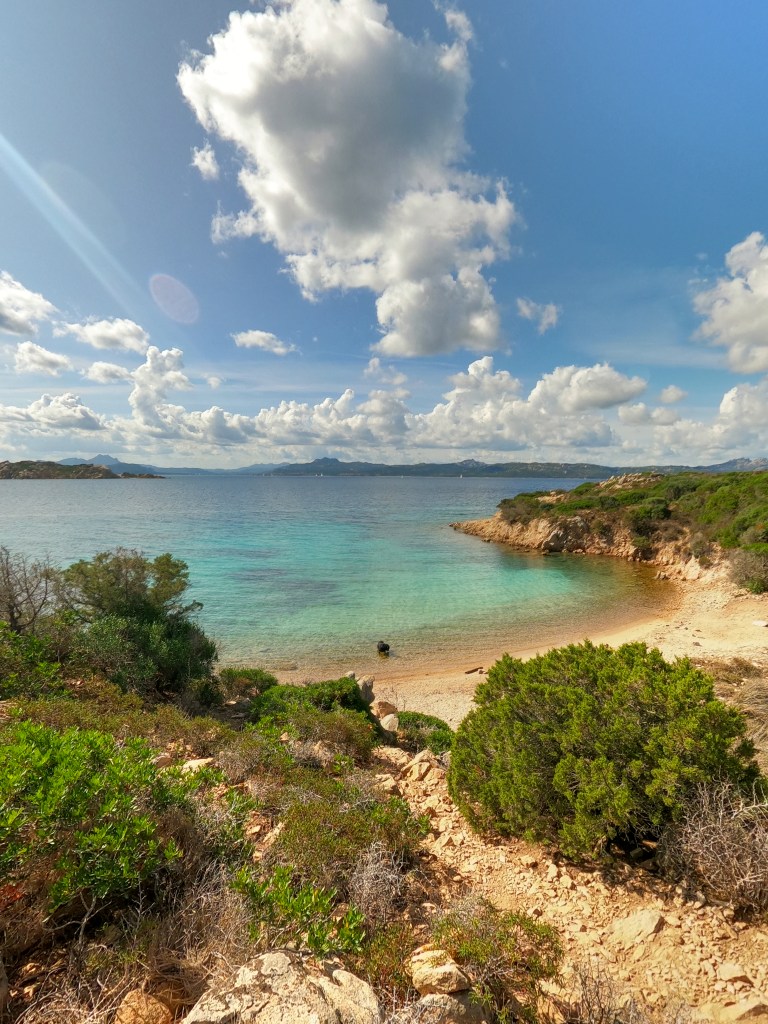
If you’re visiting a destination outside of the U.S., chances are that it’s very walkable or well connected by public transportation. Travelers utilize metro systems, trams, and trains to get around, just as a local or the general population would. Tourists, on the other hand, may opt for a pricey taxi ride or tour bus just because it seems more convenient. In reality, public transportation systems in big cities often have stops at all the major landmarks you may want to see, in addition to non-touristy residential areas where you’re bound to find the best restaurants.
Travellers also know that using public transportation minimizes the possibility of scams and overpaying for a ride, especially if you do not speak the language and are clearly a visitor.
🚇 Rome’s metro system is the cheapest and quickest way to get around all the top sites including the Spanish Steps, Colosseum and Vatican City .
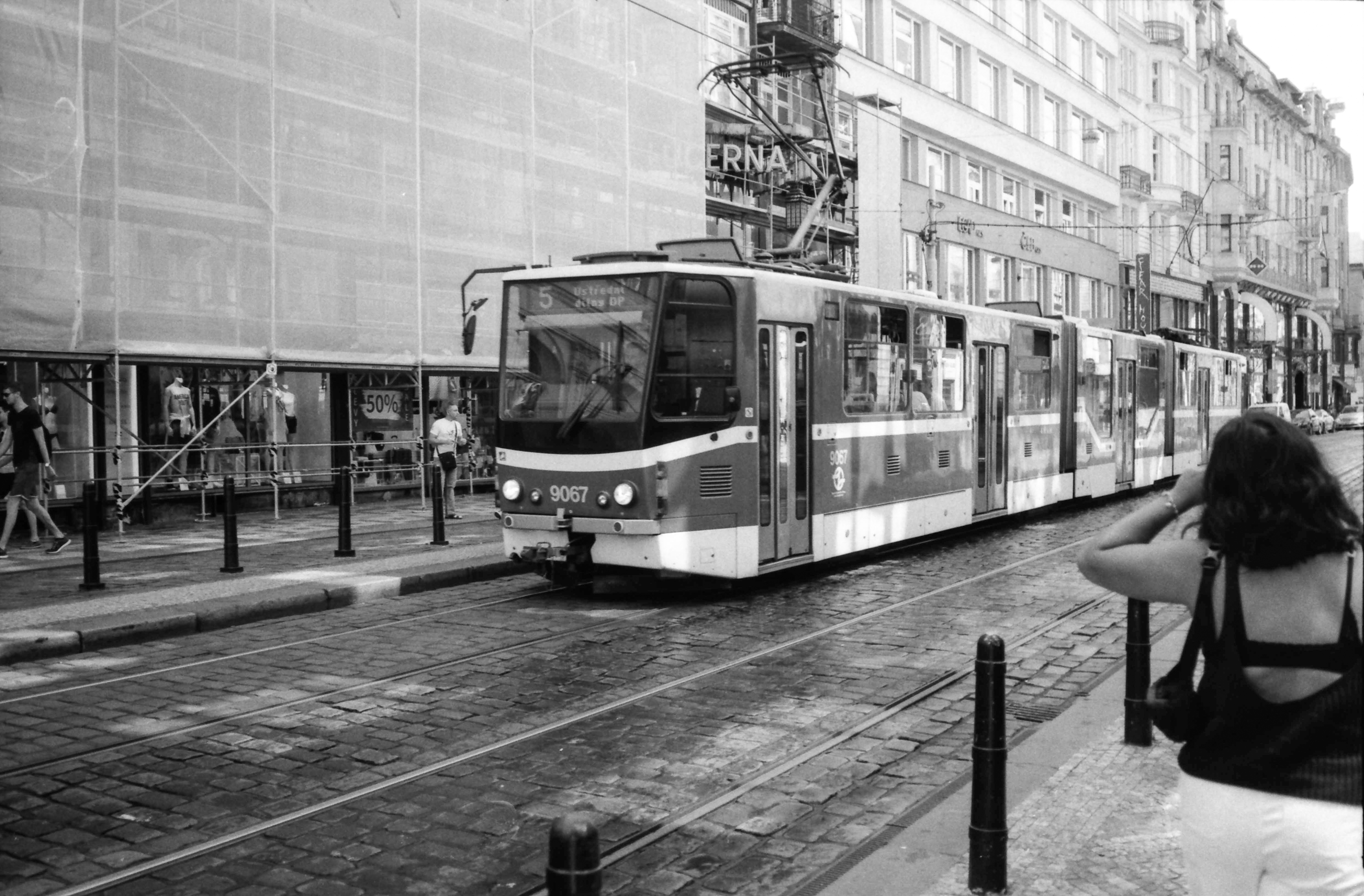
To be a traveler and not a tourist, you must be comfortable with throwing out the itinerary (at times). Getting lost should not be seen as a bad thing , but instead, an opportunity to explore without an agenda and preconceptions.
While you’re walking around, let impulse guide you and turn down a certain street because you want to. And not because a guidebook is telling you that you have to see a certain statue. We can’t tell you how many times the best highlights of our travels happened without a plan.
When looking at a map of your upcoming destination, consider staying in the surrounding residential neighborhoods as opposed to the central districts. Travelers know that staying in the suburbs will often surprise you with better food, friendlier locals and cheaper accommodation . If you’re sincerely interested in what every day life and culture is like in the place you are travelling to, you’ll find it in the outskirts and not in the city centre.
In extreme (but not that rare) situations, many popular destinations are inhabited by very few locals because they’ve been priced out. Who wants to stay in a condensed area with only other tourists around? Not travellers, that’s for sure!

To be a traveler and not a tourist, don’t be shy or afraid to mingle with the locals . Do you see someone practicing an unusual craft in their garage? A fisherman in the river casting a net with a smile? It doesn’t have to be a significant interaction as even the smallest exchange can be impactful. Engage, ask questions, learn something and thank them for their generosity of sharing their time with you. More often than not, locals are happy to know that you are curious and excited to share with travelers.
This tip requires some ability to read the room, but if you feel like the timing is right, “tagging along” is usually how we fall into some of our most memorable experiences.
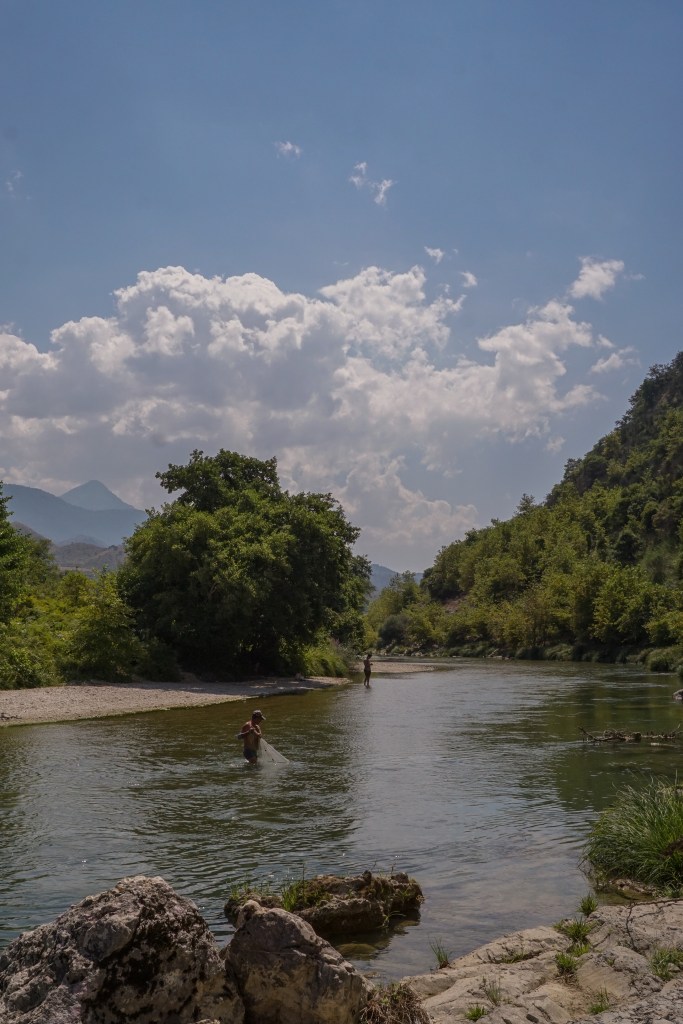
One of the most common methods of not traveling like a tourist is knowing where to eat. Yes, you can follow recommendations online, travel blogs, or even magazines, but the best insight on restaurants will always be found from someone who lives there. Everyone eats, right? Well, chances are that everyone has a favorite restaurant or food cart within the area. Take it a step further and ask about which dish in particular you should try.
If a hotel concierge or even an Airbnb host begins to recommend a restaurant by saying “many guests enjoy…” then try to instead ask “where do you enjoy going out to eat?”
Travellers, opposed to tourists, are well informed of a few things to ensure they are being respectful during their trip. It is common for tourists to travel with the idea of being able to get away with everything because they are on holiday and contributing to the tourism industry. Unfortunately, we’ve seen too many tourists exercise entitlement and not follow even the most basic of ways to remain respectful.
- Don’t get really drunk in public. This is not respectful in any culture and the quickest way to shine a light on you for being a rowdy tourist.
- Have respect for the religion . Whether it’s related to covering up in places of worship, not showing affection in public or withholding certain words, do your research beforehand.
- Know of any cultural customs and etiquette . Be mindful of any rules you should follow in public such as using your hands to eat a certain dish or never taking a sip of alcohol without someone joining you (true story from Vietnam!)
Tourists will not take the time to become informed but travellers are cognizant of every opportunity to be respectful .
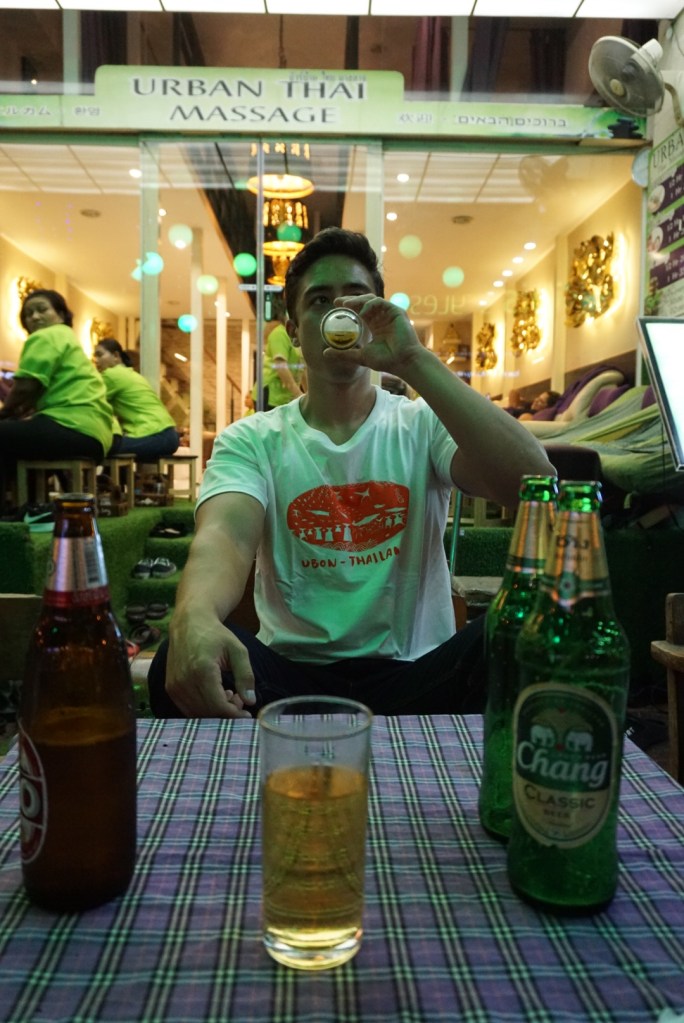
Food and language are some of the core components of one’s culture . To be a traveler and not a tourist, do not expect everyone to understand your language and have the same food preferences as you. Embrace distinct differences in cuisine and eat at places where you don’t even understand the menu.
Go beyond just learning a few basic phrases in a new language and continue to ask locals for help on how to say certain words while you’re there. Being curious and open is what sets travellers apart from tourists and locals recognise this.
As a traveller and at the very least, learn how to say hello , goodbye , thank you and please .
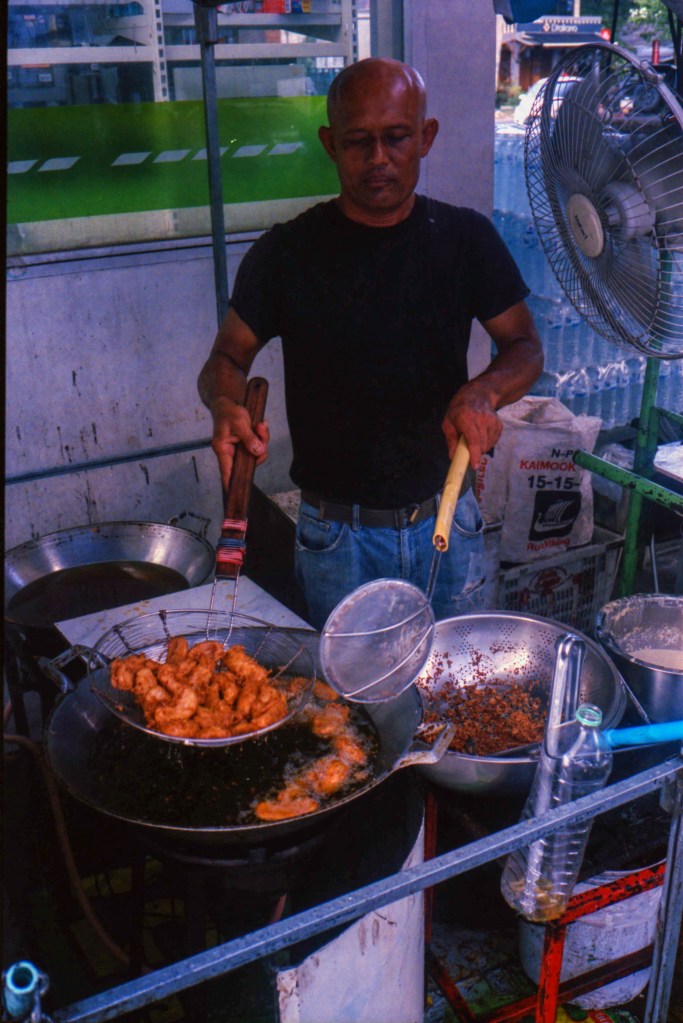
Travellers are less likely to get taken advantage of and scammed because they know what to look out for. On the other hand, tourists are often found to be more distracted and therefore, not alert of potential pickpocketing or other known tricks on tourists. Travellers are aware of their surroundings and continue to use common sense in situations that don’t seem just right. Although you are travelling or looking to relax on vacation, doesn’t mean you should leave all sense of judgement behind.
If a scenario seems weird and you’re being approached for no reason, chances are that it’s not a positive thing. Many tourist scams tend to begin with a “harmless” conversation or attempt to sell you something. Do not expect everyone to be kind, genuine, and looking out for your best interest just because you are a tourist and spending money.
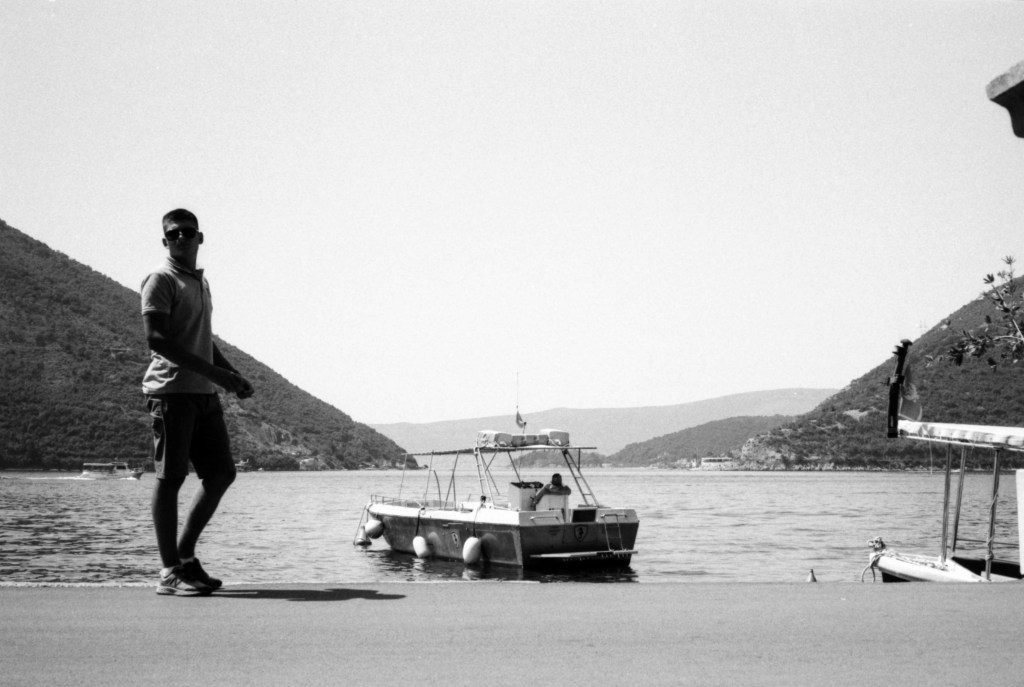
Having an open mind is a traveler’s most distinct characteristic over a typical tourist’s mindset. Preconceived ideas will only diminish your overall travel experience and to nobody else’s fault than your own, cause you potential disappointment. As a traveler, we do not compare and instead, accept each and every destination for its own uniqueness .
💤 In Italy, many businesses will shut down after lunch for riposo ( midday rest ). Countless times, we’ve heard the murmur of complaints among tourists that find it to be an inconvenience during their trip. Don’t be like these whiners. Instead, understand that you are in a completely different country that has their own practices.
Getting into the habits of a traveler instead of a tourist doesn’t happen overnight. It’ll take a couple of tries and some experience. However, if you are traveling with kids, don’t be afraid to use them (in a good way). If there’s one thing that’s consistent with anywhere that we’ve traveled to, it’s that kids are kids all over the world . Take your child to a playground, let them interact with other kids, local games and activities . If you’re open to it, introduce yourself to the parents and strike up a conversation. It is the most natural way to blend in as a traveler opposed to a tourist when we let the unbiased ways of our children do the work.
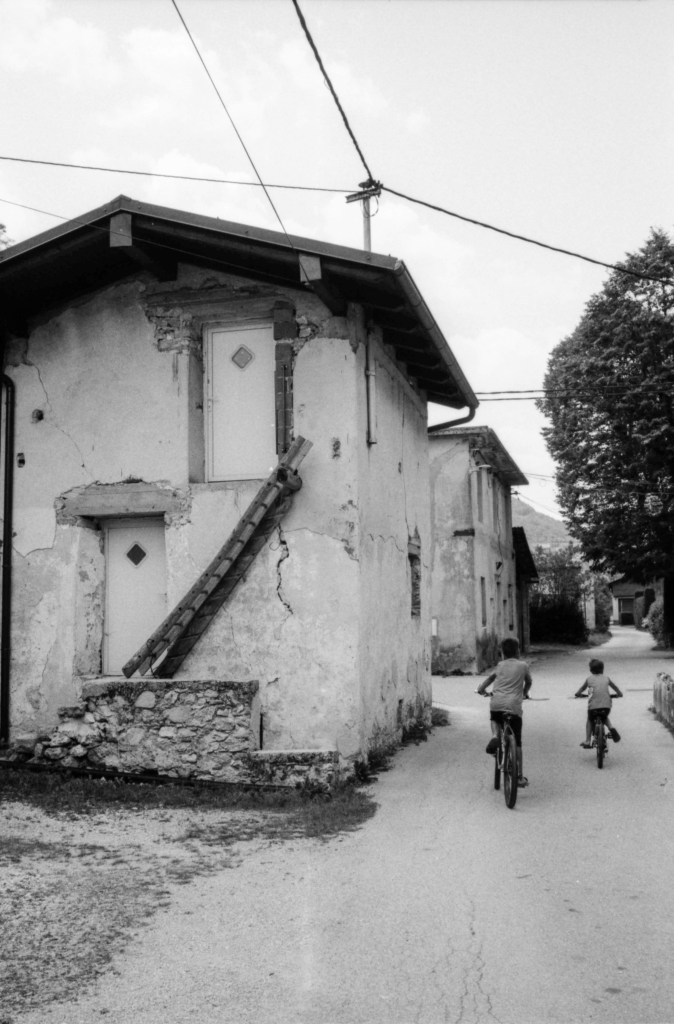
- Tourists collect souvenirs. Travelers collect unique experiences , knowledge, and insight into other cultures.
- Travelers don’t need flashy tours or big entertainment to enjoy a destination. They find admiration and appreciation in even the smallest of details when it comes to experiencing a different culture.
- To be a traveler and not a tourist means you will eat better quality , authentic, and less expensive food than a tourist.
- By being respectful of another culture, travelers are more likely to be treated better by locals .
- Travelers are less likely to get scammed or taken advantage of because they don’t look or act like tourists.
- A typical tourist is more likely to overpay for everything while traveling, including accommodation, activities, and transportation.
Affiliate Disclaimer: Please note that some links found in our posts are affiliate links. Should you choose to purchase through these links, we may receive a small commission at no extra cost to you.
Share this:
7 thoughts on “10 easy ways to be traveller and not a tourist”.
Pingback: Best Beaches and Viewpoints in Zakynthos - Adventures of Ace
Pingback: The Perfect Vacation in Cavtat, Croatia - Adventures of Ace
Pingback: How to Travel Sardinia on a Budget - Adventures of Ace
Pingback: Complete Guide to the Best Beaches in Cavtat - Adventures of Ace
Pingback: Booking Affordable Travel: Fundamental Tips & Tricks - Adventures of Ace
Pingback: 15 Things to Know Before Visiting the Czech Republic - Adventures of Ace
Pingback: 23 Underrated Places in Europe to Visit Instead of Touristy Destinations
Leave a Reply Cancel reply
Discover more from adventures of ace.
Subscribe now to keep reading and get access to the full archive.
Type your email…
Continue reading

IMAGES
VIDEO
COMMENTS
While a tourist may be spending well over $200.00 daily, a traveler may only be spending $50.00 daily (or even $20.00 or zero for savvy backpackers). This of course varies wildly. Another difference is that whereas a tourist will often choose a place and see it superficially in a short time period. A traveler will choose a region and will often ...
1. Purpose of the Trip. If someone is visiting a new place for leisure and relaxation, they may be more likely to be described as a tourist. On the other hand, if someone is visiting a new place for educational or cultural purposes, they may be more likely to be described as a traveller. 2.
It's usually easy for locals to spot a tourist among them. A tourist may carry a camera, guidebook and map at all times and wear the same clothing he'd wear at home. Tourists tend to stay in their ...
Travellers care about the people they are meeting, both locals and foreigners alike. Travellers care about the way they travel, they want to discover and explore but in a sustainable way. Travellers just care. A lot of people argue one of the main fundamental differences between a traveller and tourist is education.
Tourists and travellers differ in their mindset and approach to exploring new places. Tourists often use travel as escapism and comfort, sticking to the itinerary and ticking off lists of iconic sights. On the other hand, travellers seek to enrich their experience by soaking in experiences and discovering off-the-beaten-path locales.
Learning the difference between a tourist and a traveler is essential to understanding the nuances of travel culture. Use the following exercises to improve your understanding and use of these terms in sentences. Exercise 1: Fill In The Blank. Choose the appropriate word (tourist or traveler) to fill in the blank in each sentence below:
TIME: Tourists prioritize cramming in as much as possible into a short amount of time, and every minute is planned. The more sights, the better. Travelers move at a slow pace, preferring to experience and learn, rather than merely see. The more time in one place, the better.
A traveler can go to an art museum and appreciate what he/she sees, just as a tourist can befriend a local. There are many overlapping grey areas, depending on the travelers or tourist in question, but for the most part, tourists are primarily concerned with seeing, whereas travelers are primarily concerned with connecting.
When we think of travel, we often envision exploring exotic destinations, witnessing breathtaking landmarks, and trying out local delicacies. However, not all travelers are created equal. Traveler vs. Tourist is a common debate in the travel community. Some embark on a journey as tourists, while others embrace the role of a true traveler.
Holding forth on the merits of real travellers was a hippy trail cliché. The main distinguishing feature, it seemed, was the relative wealth of the traveller. If you lived off £1 a day, you were a traveller; more than that, you were a tourist. It was also something to do with the size of your suitcase (or backpack) and how engaged you were ...
A tourist will learn a few words of the local language. A traveller will too, but act like they know more. A tourist gets ripped off. A traveller haggles. And still gets ripped off. Tourists (the British ones at least) get drunk. Travellers also get drunk but ensure their drinking money is going directly to the local community.
Whether you're a traveller or a tourist, these interactions will enrich your experience and create lasting memories. Leave a Positive Impact. Both travellers and tourists have the power to leave a positive impact on the places they visit. Support local businesses, respect the environment, and contribute to the local economy.
A TRAVELLER… eats local food and tries local dishes. A TOURIST… buys a few souvenirs and culturally misappropriates the clothing, hairstyles and items. A TRAVELLER… buys a few souvenirs and treasures them. A TOURIST… expects the location to change for them A TRAVELLER… happily changes for the location
A traveller or tourist is two sides of the same coin. Both are travelling, and both should be enjoying themselves and their surroundings. According to the Oxford English Dictionary , the definitions are; Traveller (or traveler) "A person who is travelling, or who often travels."Tourist "A person who travels for pleasure.".
As mentioned earlier, "traveler" and "traveller" are used interchangeably in many regions of the world. However, there are some regions where one spelling is more commonly used than the other. In American English, "traveler" is the preferred spelling. This is the case in Canada as well. In Australia and New Zealand, "traveller ...
The traveller really gets to know and understand the root of the country they are in. On the other hand, a tourist is usually short on time. He has a specific amount of time in which he has to plan his whole trip. A tourist is usually a person that has to see the gist of the country they are visiting in a short time.
On the other hand, the traveller looks at the tourist, the brochures he holds until sweat softens them, the colourful outfit he dons for picture-worthy opportunities, his need to buy ready souvenirs from "over-expensive" traps, and as reverse snobbery, dismisses the tourist in arrogance. No, there is nothing to learn from each other, they ...
Region. Key Features. Traveler. United States. Simpler spelling, one 'l'. In America, we usually write 'traveler.'. It's simpler with just one 'l.'. This way of spelling came about in the 1800s to make writing easier. So, if you're in the United States, 'traveler' is the way to go.
Tourist vs. Traveller is a way to identify, but often says more about the age or life stage and budget (both money and time) of the person than their real preference. For many people looking at how to spend the annual vacation allowance, a pampering spa-resort with the occasional fine dining experience, is usually more suited for a break from ...
Similarly, if you are referring to a company named "Traveller's Insurance," you would use the spelling "traveller" as it is part of the company name. 3. Personal Preference. Ultimately, the choice between "traveler" and "traveller" may come down to personal preference.
A tale of two variants. What to Know. When it comes to spelling the forms of the verb travel, traveled and traveling are more common in the U.S., and travelled and travelling are dominant everywhere else. Spelling is typically clear-cut in modern English: forty unfailingly betrays four; the sweet treat after dinner is spelled dessert, not desert.
A traveler sees what he sees; the tourist sees what he has come to see. A traveler makes his own way; a tourist has another make his way for him. A tourist takes his prejudices with him; a traveler is transformed by his journeys. A tourist comes home with photos; a traveler comes home with memories. In other words: A traveler like me is cool; a ...
Anthony Bourdain once stated, "Travel isn't always pretty. It isn't always comfortable." As travellers, we wholeheartedly agree with this sentiment and wouldn't change a thing about it. To travel, really travel, and be a traveler is to not be a tourist that hops around from one hot spot to another. Contrary to popular belief ...